Special Report
50 Popular Restaurants That Won’t Reopen After the Pandemic
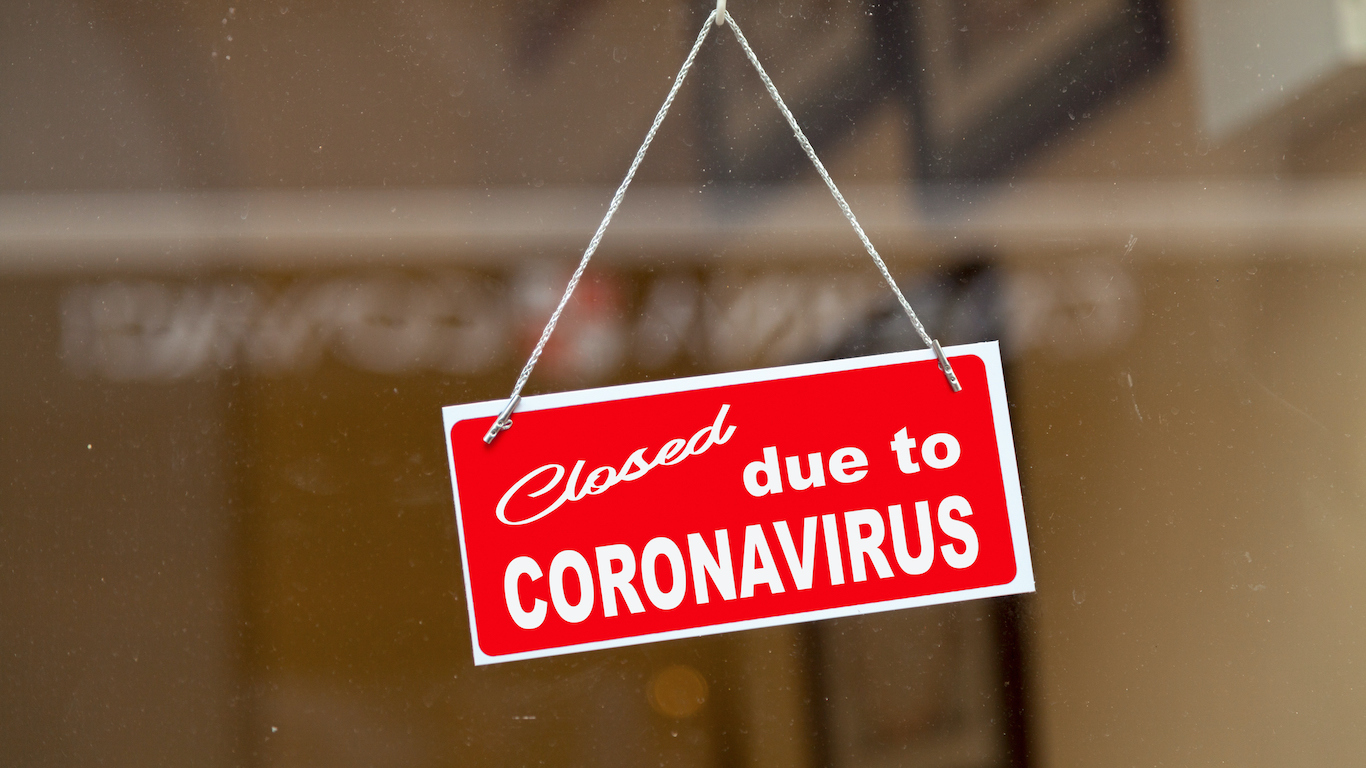
Published:
Last Updated:

One of the industries that has been hardest hit by the coronavirus shutdown of American businesses is the food service trade. In just the first three weeks of March, restaurant sales nationally plummeted 47%. This is due largely to the fact that restaurants all over America are now temporarily limited to providing dine-out services only. (This rule has been applied by the governments of every state except South Dakota, according to a guide to state coronavirus lockdowns published by the Wall Street Journal.)
Many of these restaurants are carrying on as best they can, providing customers with food and drink on an off-premises basis, with even fancy restaurants offering take-out and delivery during the coronavirus crisis.
Other places are simply hunkering down for the duration of the crisis, furloughing or firing all or most of their employees and waiting for the moment they’re permitted to reopen. Others have converted themselves into community kitchen operations to feed the needy. But not all establishments will survive the pandemic, no matter what they do.
Because restaurants tend to operate with substantial debt and on small profit margins at the best of times, a long-term closure inevitably means death to some. According to a survey conducted in late March by the National Restaurant Association, 3% of operators reported that they had already permanently shuttered their eateries, while 11% of the remainder said that they might well close within the next 30 days. The California Restaurant Association, for its part has predicted that without major government assistance, as many as 30,000 eating places in the Golden State will go out of business.
24/7 Tempo has assembled a list of 50 popular restaurants and restaurant chain units across the country that have announced that they will not be reopening even after restrictions have been lifted (as they already have been in an increasing number of states). These include everything from a classic hot dog joint to a multi-unit buffet operation to one of Manhattan’s most famous fine-dining venues. Some of these had barely gotten started when the shut-down orders came, while others had been around for many decades.
Click here to see 50 popular restaurants that won’t reopen after the pandemic
In a few cases, the restaurants probably would have closed soon anyway for other reasons, but the pandemic hastened their demise. In other cases, the owners ran the numbers and realized it wouldn’t make sense to reopen — that they would never be able to make up for lost revenue.
Unfortunately, this list will almost certainly continue to grow as the crisis drags on and restaurants that had originally planned to reopen realize that they, too, must shut down for good. These are just more examples of U.S. industries being devastated by the coronavirus.
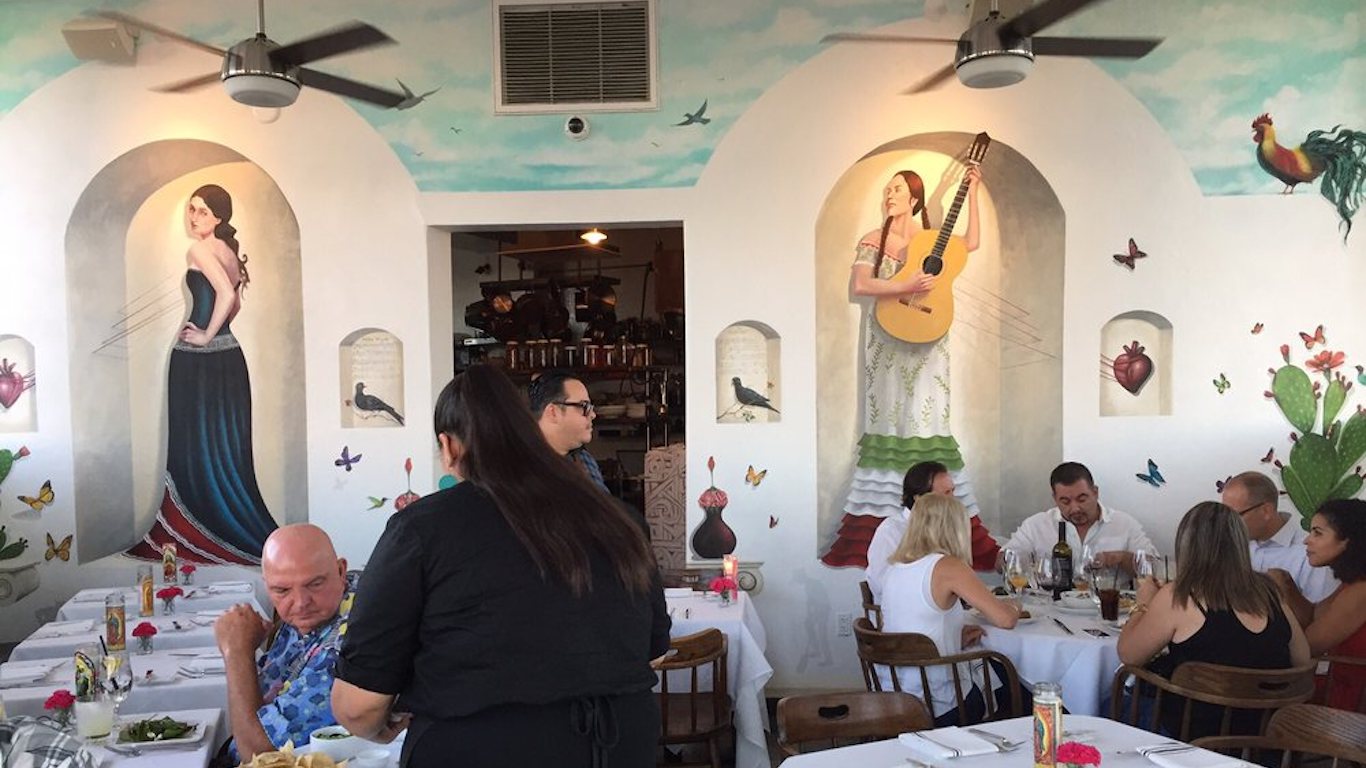
Arizona: Barrio Café Gran Reserva
> Location: Phoenix
This award-winning vegan-focused “mole palace” (as the Phoenix New Times once called it), open since 2016, is no more. Chef-owner Silvana Salcido Esparza cited “zero funding and coronavirus” as the factors involved with her decision — adding that closing the place will allow her to save her other Phoenix restaurant, Barrio Café, currently operating as a community kitchen.
[in-text-ad]
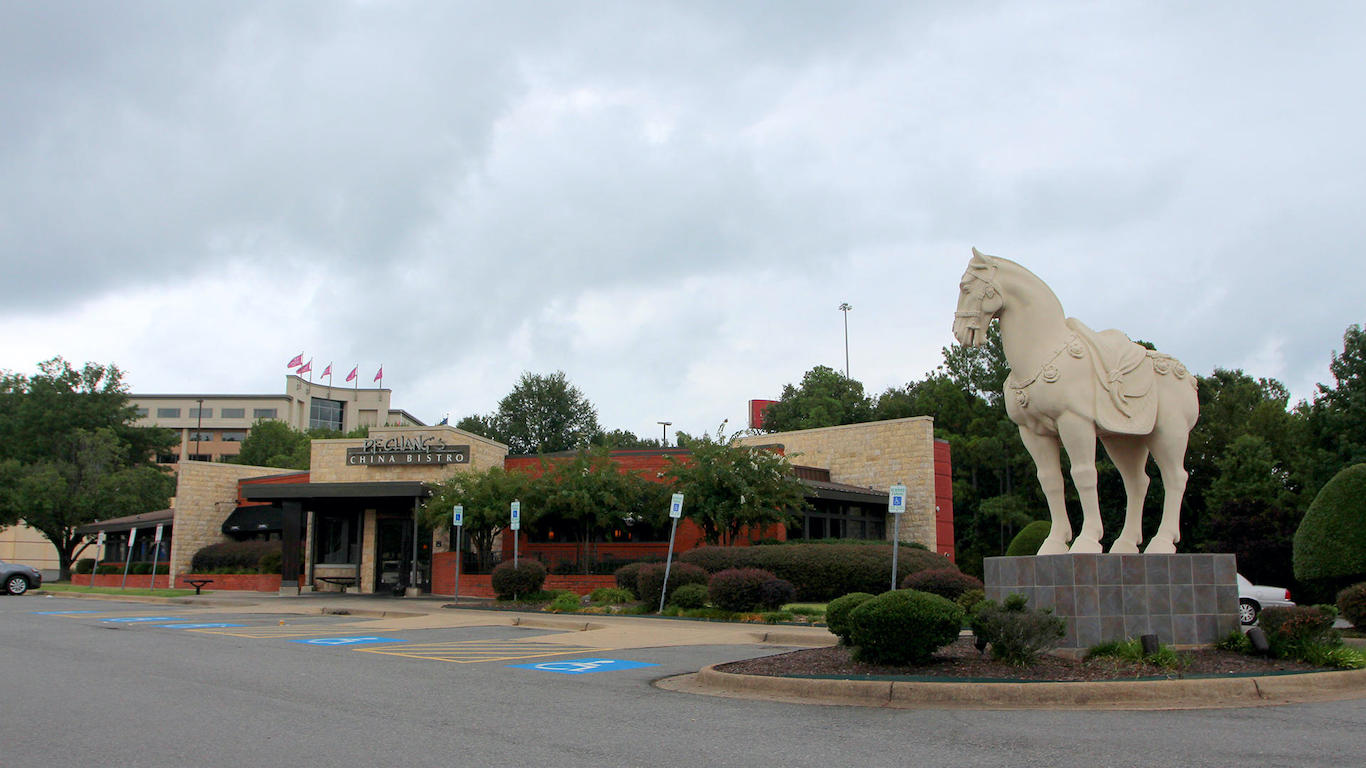
Arkansas: P.F. Chang’s
> Location: Little Rock
As a reminder that nationwide chains as well as locally owned establishments can experience coronavirus closings, the Little Rock branch of this popular Asian fusion chain has served its last meal. The demise of the restaurant, one of more than 200 P.F. Chang’s locations around the U.S., was announced on Facebook in late March.
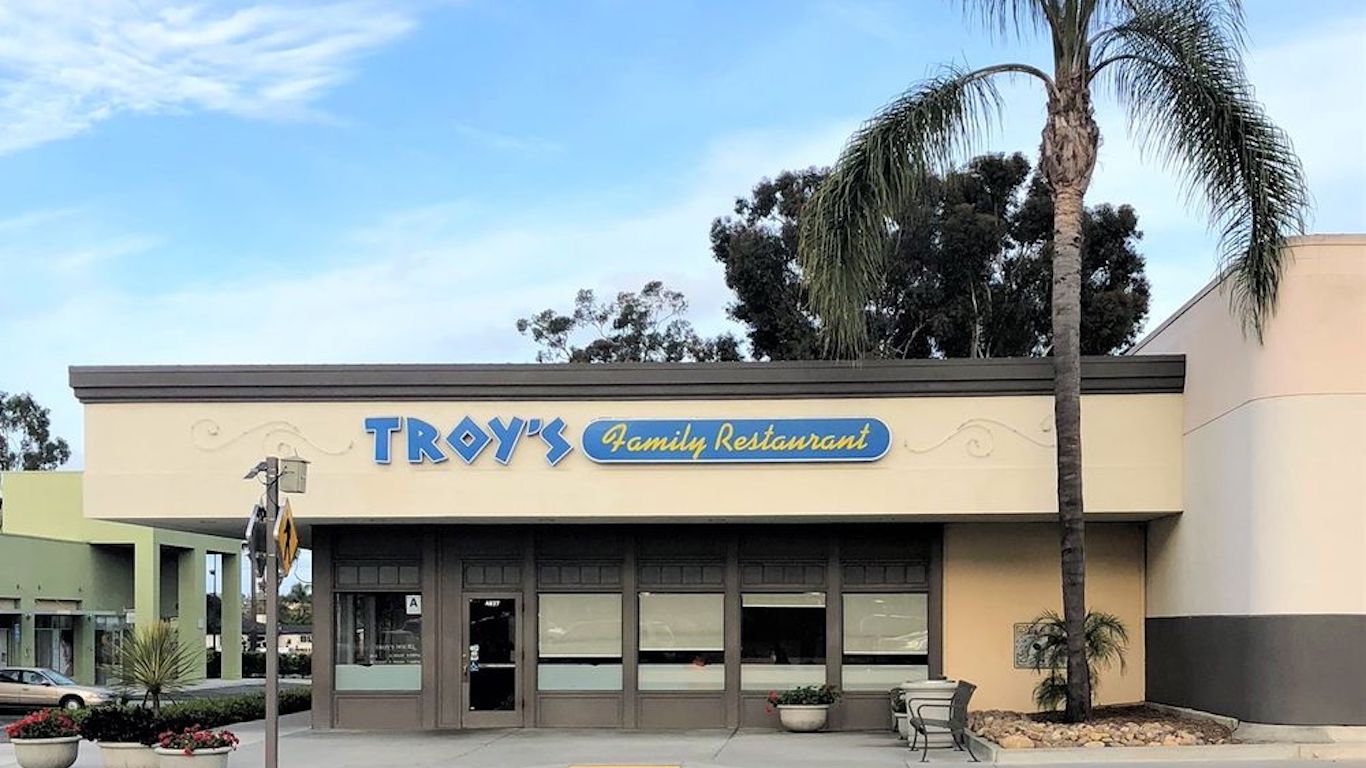
California: Troy’s Family Restaurant
> Location: San Diego
Troy’s, which has served the city’s Clairemont neighborhood for 46 years, closed for good in late April. “As every month goes by,” owner Mary Likomitros told San Diego’s CBS8, “the bills just don’t stop.” She said that the restaurant had applied for a Paycheck Protection Program loan through Wells Fargo bank, but never heard back from them.
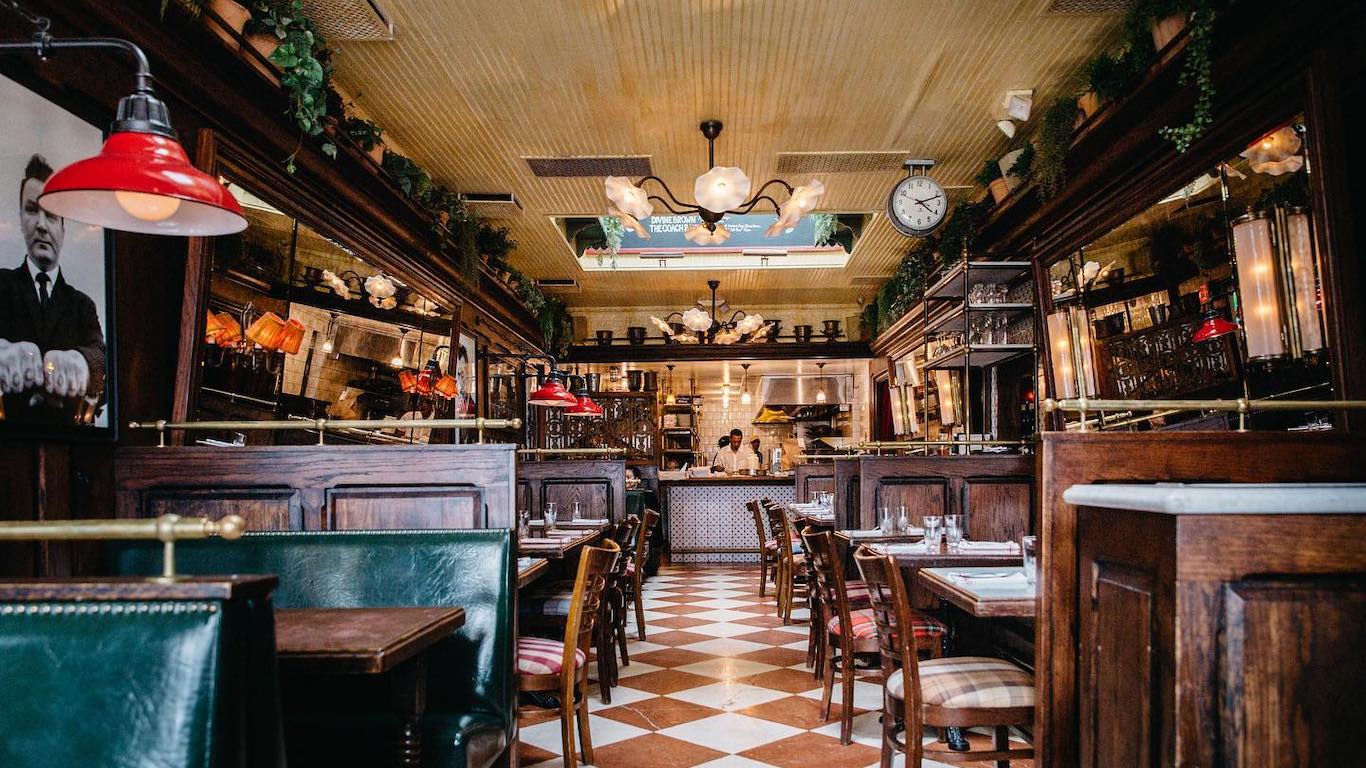
California: The Pikey
> Location: Los Angeles
The owners of Swingers (see below) opened this pub and restaurant on the site of a venerable dive bar called Ye Coach & Horses in 2012. In common with Swingers, it won’t revive after the coronavirus crisis abates — though the proprietors say they have plans to convert the space into a different restaurant at some future point.
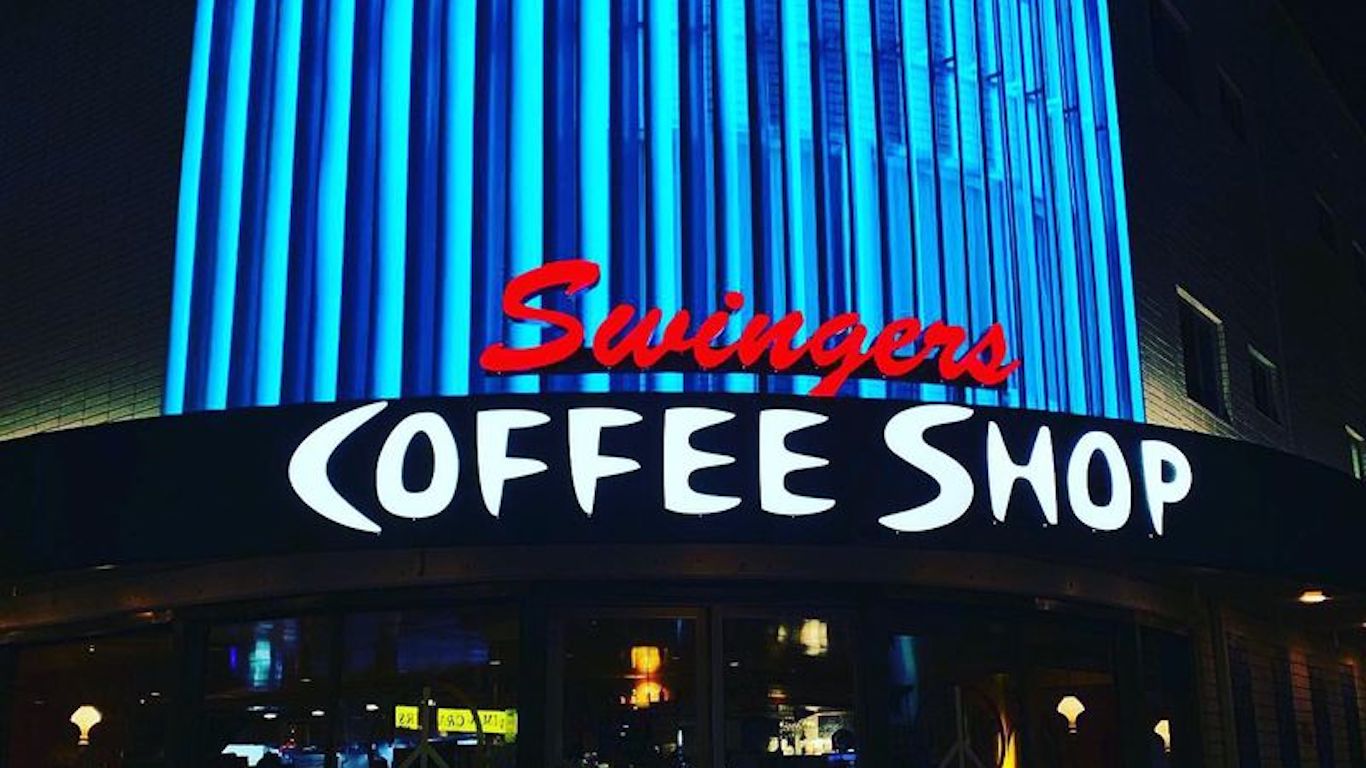
California: Swingers
> Location: Los Angeles
A 27-year-old late-night hangout on Beverly Boulevard, Swingers ended service for good in early April. What Eater described as its “classic midcentury coffee shop vibes and…wide menu” appealed to a broad clientele.
[in-text-ad-2]
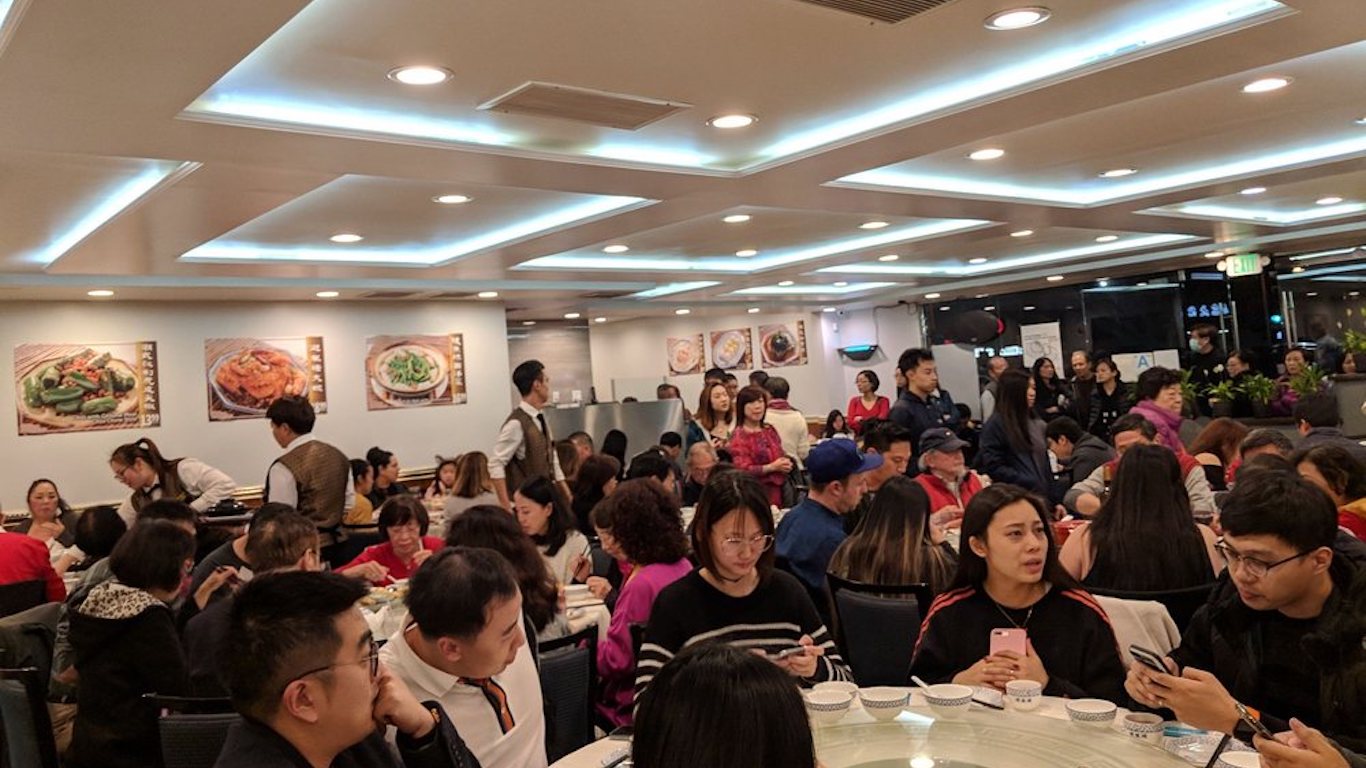
California: Seafood Palace
> Location: Monterey Park
Like other Chinese restaurants, this Cantonese/Chaozhou was particularly affected by the business downturn resulting from the coronavirus panic. Though well-regarded by lovers of authentic Chinese food — it was a favorite of the late, legendary Los Angeles Times restaurant critic Jonathan Gold — it closed permanently the week of March 3.
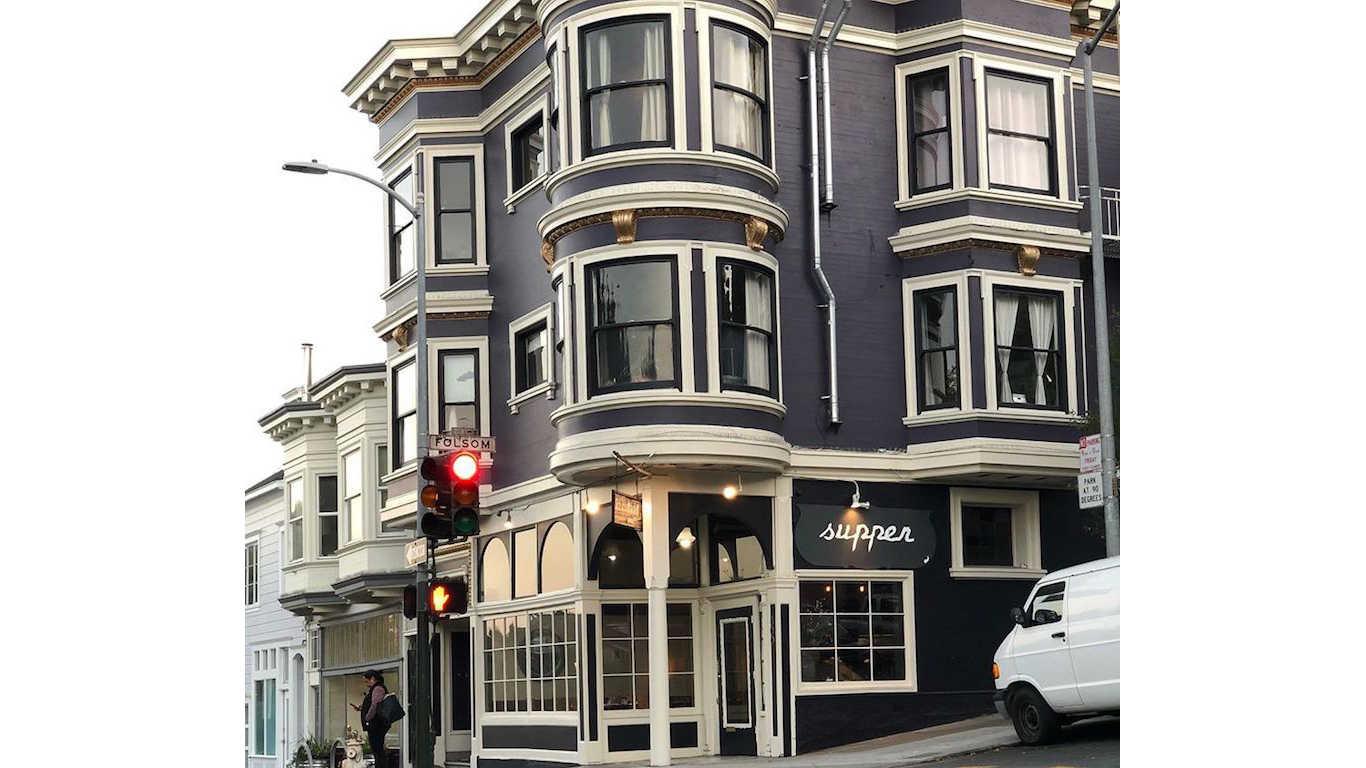
California: Hillside Supper Club
> Location: San Francisco
When this seven-year-old California-Italian place first closed in mid-March, the owners announced that they’d reopen on April 7 when Northern California’s shelter-in-place order was scheduled to end. When they realized that the closing period would be extended, they made the decision to close for good.
[in-text-ad]
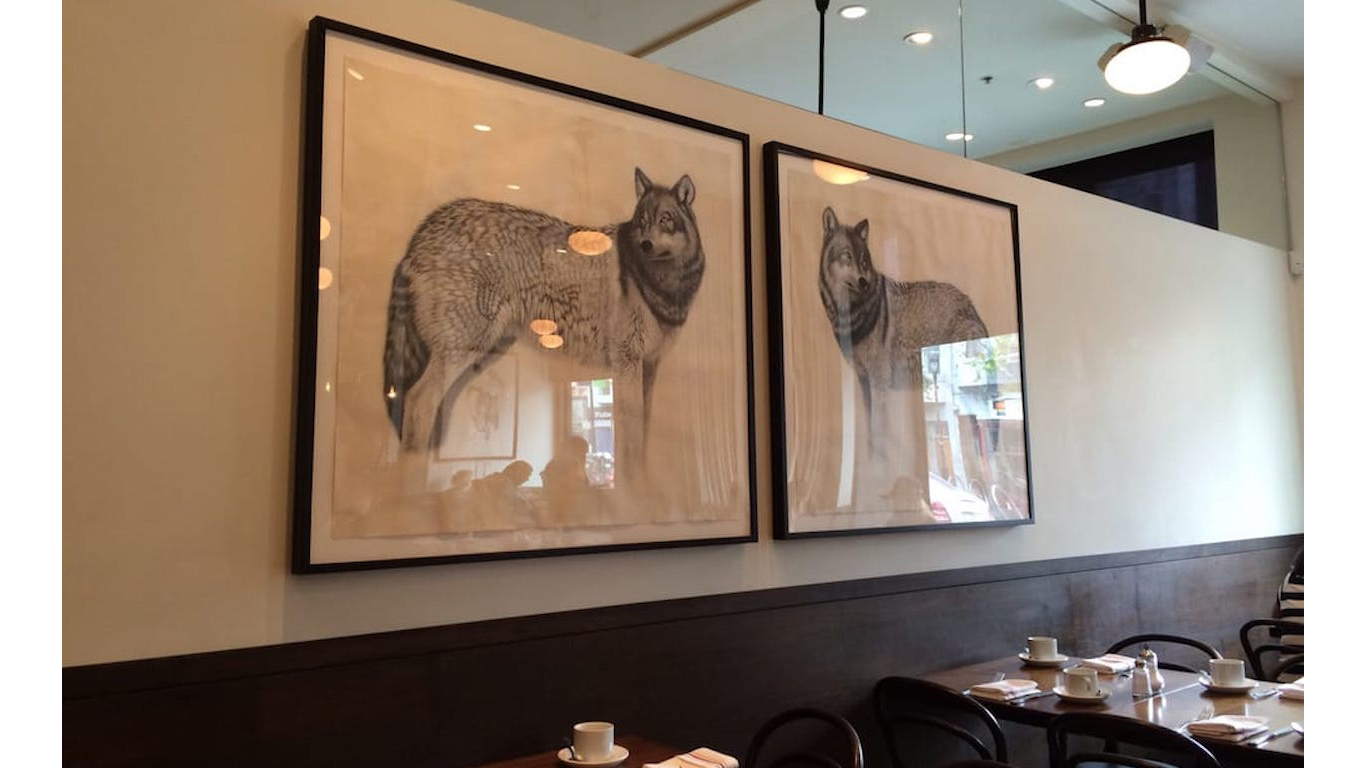
California: Locanda
> Location: San Francisco
Specializing in Roman-style pasta dishes, and hailed as a “must-visit Italian restaurant” by the San Francisco Chronicle, this upscale restaurant closed permanently in mid-March. Though it was popular, owner Craig Stoll told the Chronicle, it never made money, and the current crisis made its continued existence untenable.
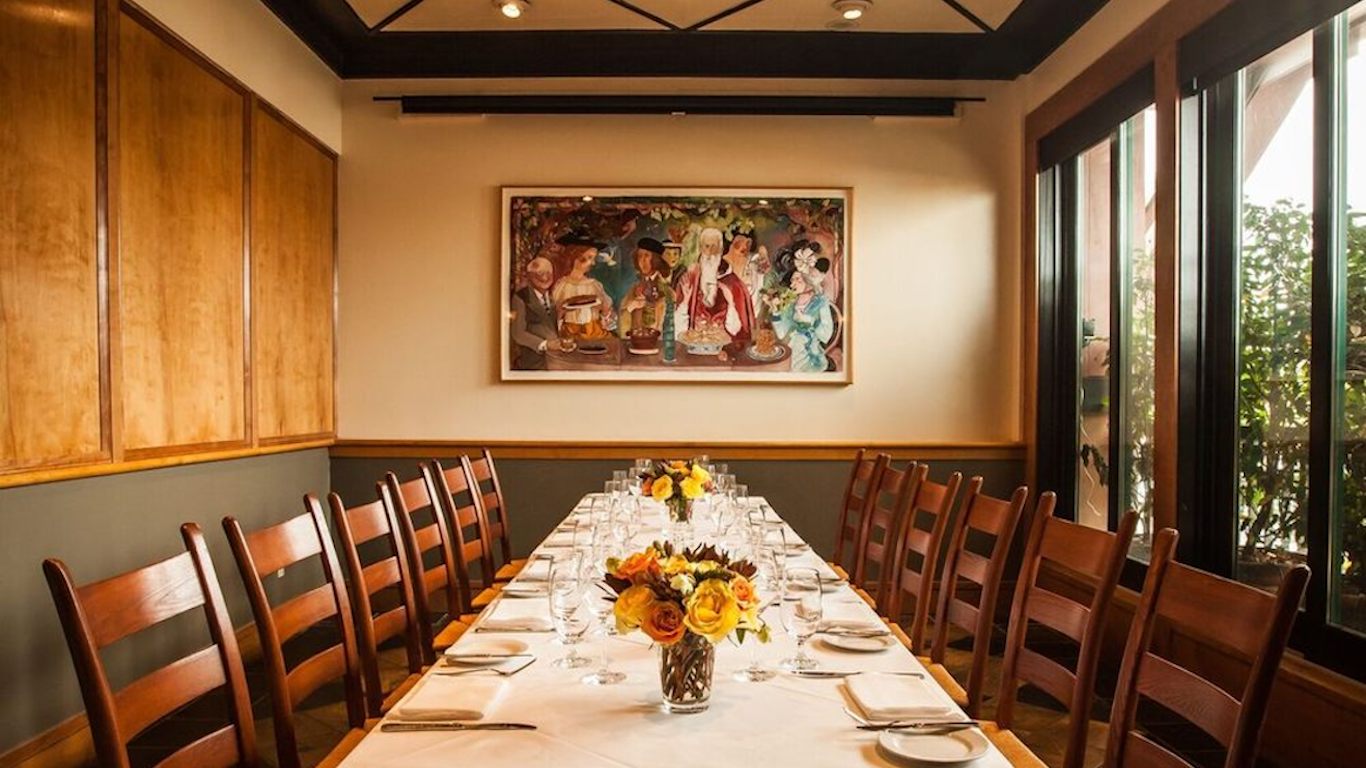
California: Viognier Restaurant
> Location: San Mateo
The restaurant at Draeger’s Market in this Silicon Valley community south of San Francisco was originally scheduled to reopen on April 30, but the San Francisco Chronicle reports that a sign posted at the place states that it is now permanently closed.

Colorado: 20th Street Café
> Location: Denver
After 74 years in business under three generations of the Okuno family, this neighborhood breakfast-and-lunch establishment has called it quits. The place has survived “up-turns and crazy downturns in the economy,” wrote current owners Rod and Karen Okuno on the restaurant website, “but this final one proved to be insurmountable for our little corner of the world.”
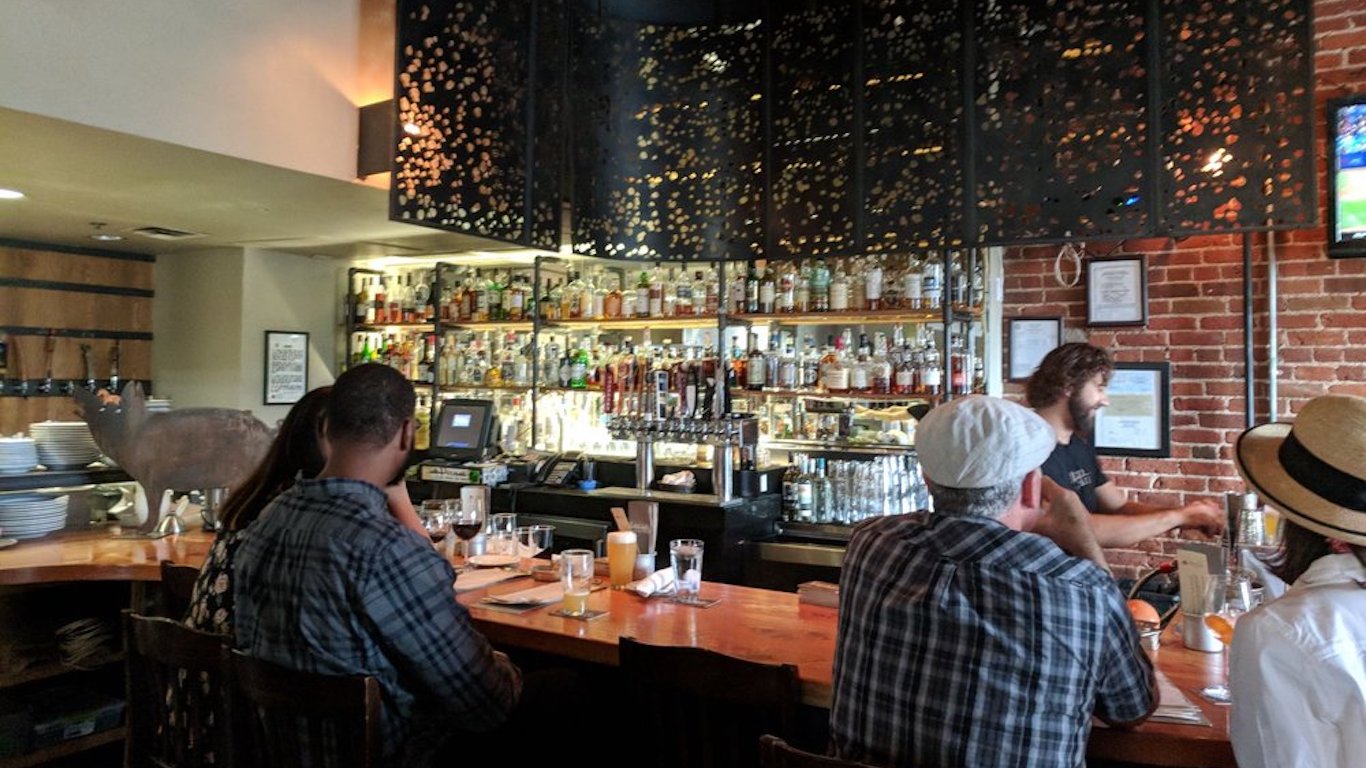
Colorado: Euclid Hall Bar and Kitchen
> Location: Denver
This 10-year-old restaurant and bar pulled the plug in mid-March, shortly before Colorado’s governor and Denver’s mayor both temporarily banned indoor dining. Euclid Hall’s lease was to expire in August, but, said a statement issued by the owners, “The cumulative effects of the COVID-19 virus on our business really gave us no choice but to close now.” A later reopening at a different location is under consideration.
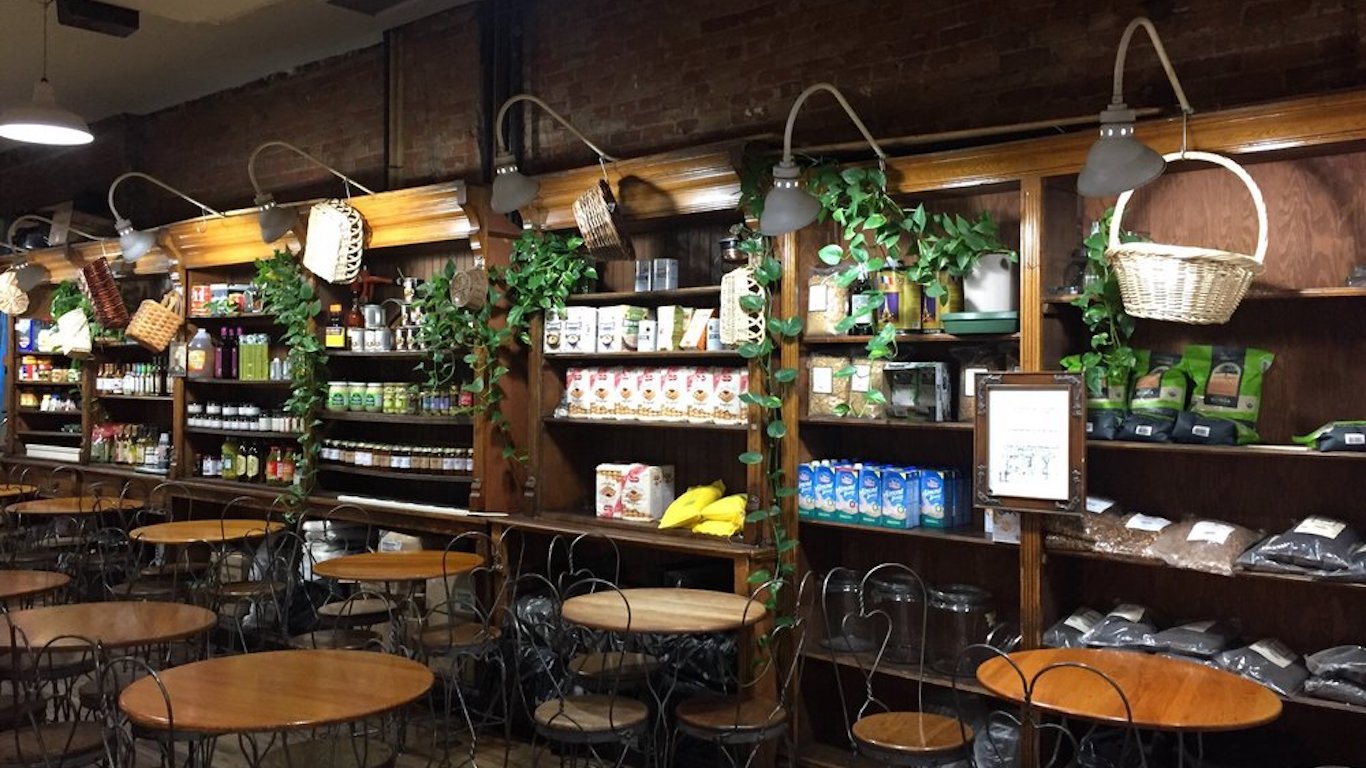
Colorado: The Market at Larimer Square
> Location: Denver
This beloved deli, bakery, market, and espresso bar combination — it was said to have been the first espresso bar between L.A. and New York City — opened in 1983. Its closing isn’t due only to the coronavirus (the proprietor had been considering retiring soon anyway), but the pandemic sped up its demise.
[in-text-ad-2]
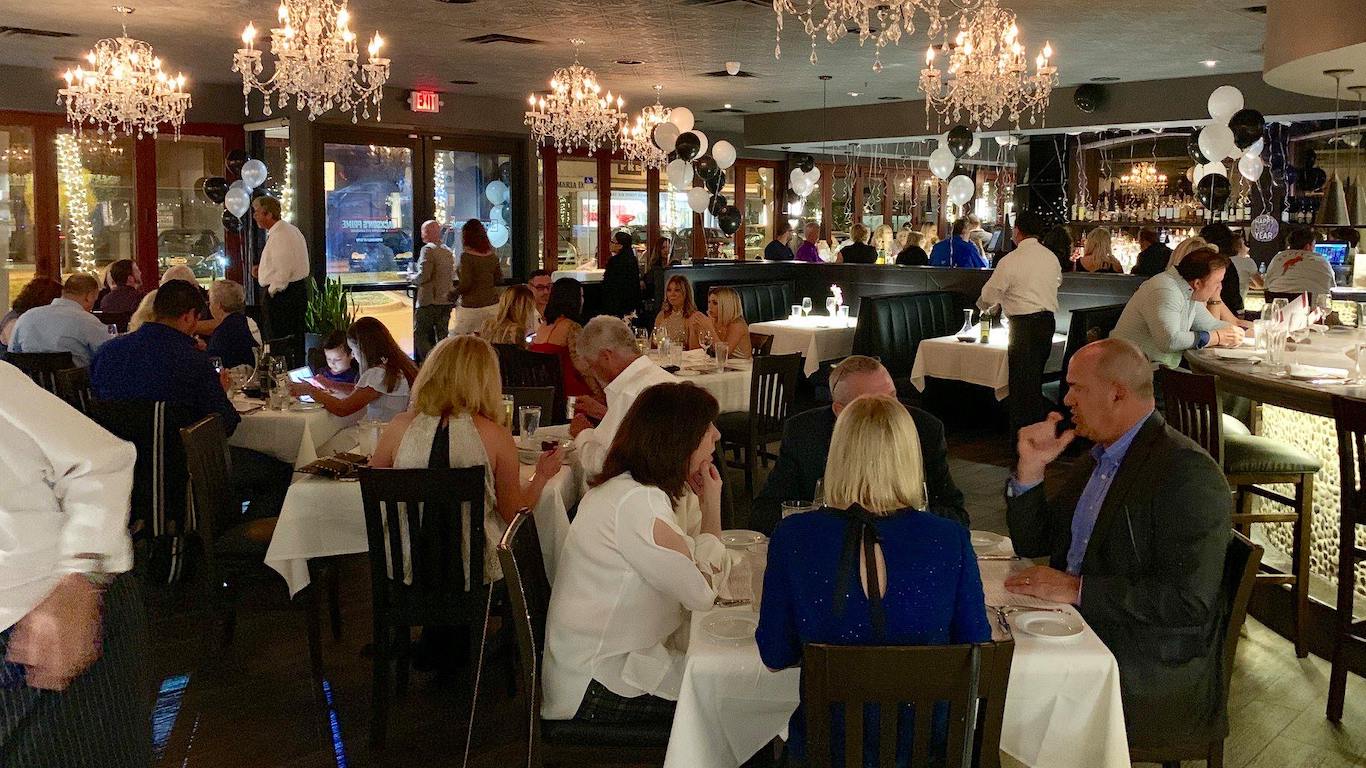
Florida: Jackson’s Prime
> Location: Fort Lauderdale
Early in April, this steakhouse, operated by local restaurant veteran Jack Jackson since 2017, announced that it had closed for good due to the coronovirus’s “crippling effect” on the economy.
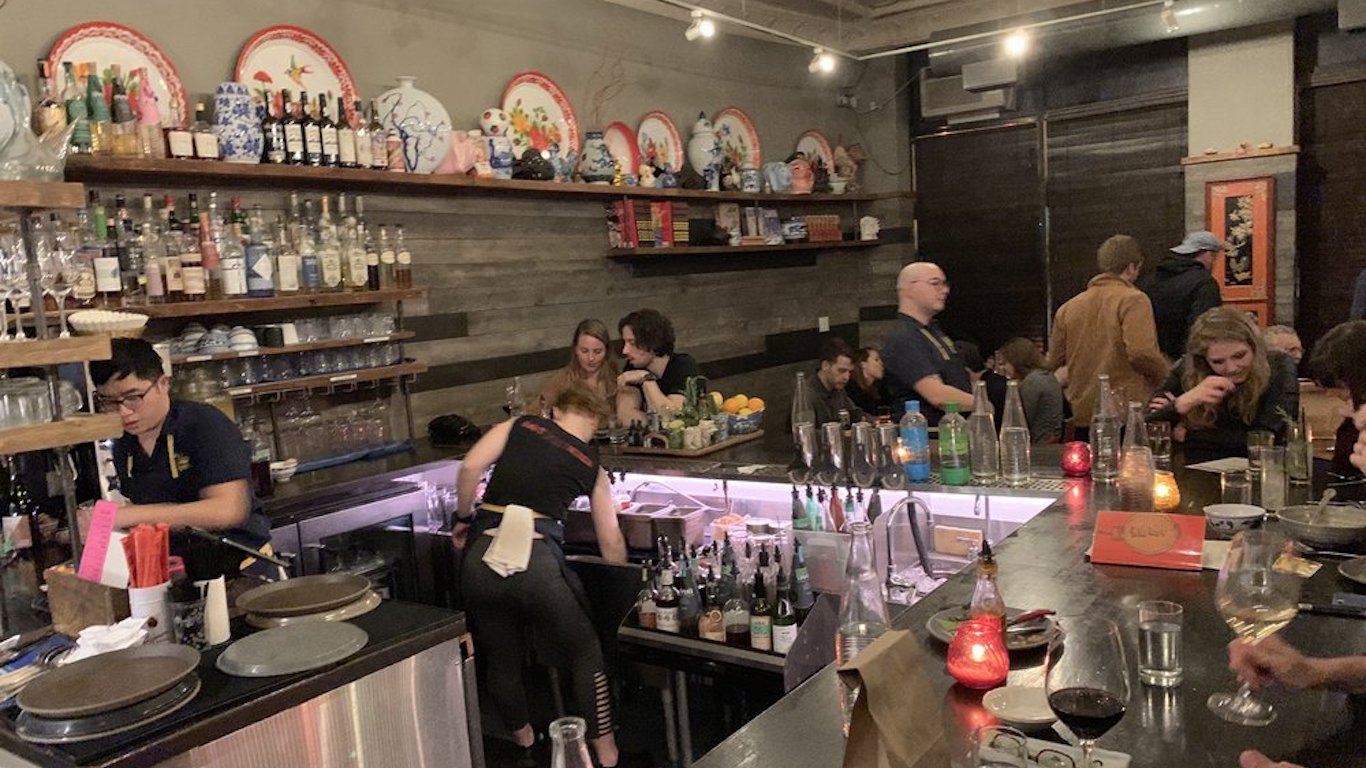
Illinois: Fat Rice
> Location: Chicago
This well-known restaurant featuring the Portuguese-Chinese fusion cooking of Macau (and given a Bib Gourmand rating from the Guide Michelin, signifying “good quality, good value cooking”) isn’t exactly closing. It is, however, converting permanently from a restaurant to the Super Fat Rice Mart, selling specialty groceries and meal kits.
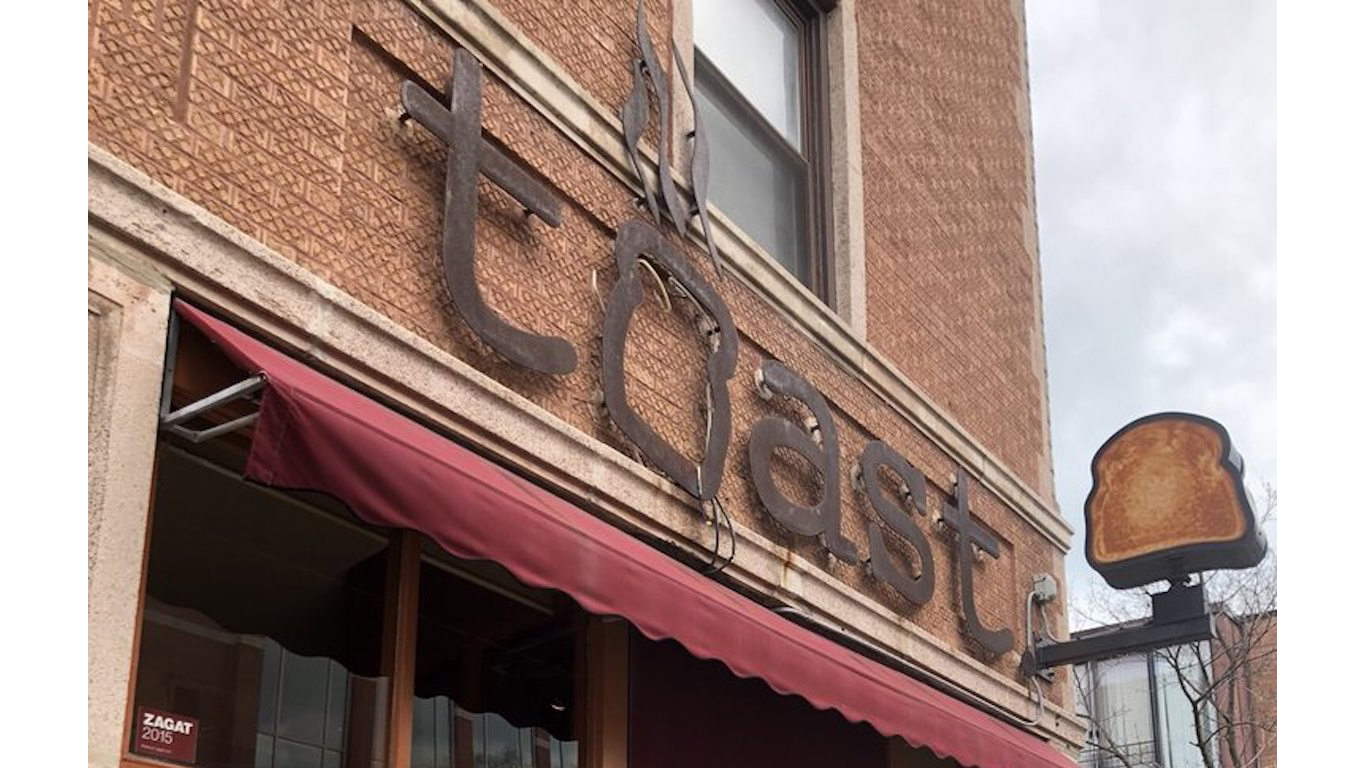
Illinois: Toast
> Locations: Chicago
Neither location of this 24-year-old breakfast-and-brunch favorite — Bucktown and Lincoln Park — will return, even when dining restrictions in the city are lifted. “There isn’t any kind of fund sitting in the bank to cover expenses,” owner Jeanne Roeser told Chicago’s Fox32. Anyway, she added, with occupancy limits, masks, and social distancing, diners wouldn’t enjoy the kind of experience the restaurant had long provided.
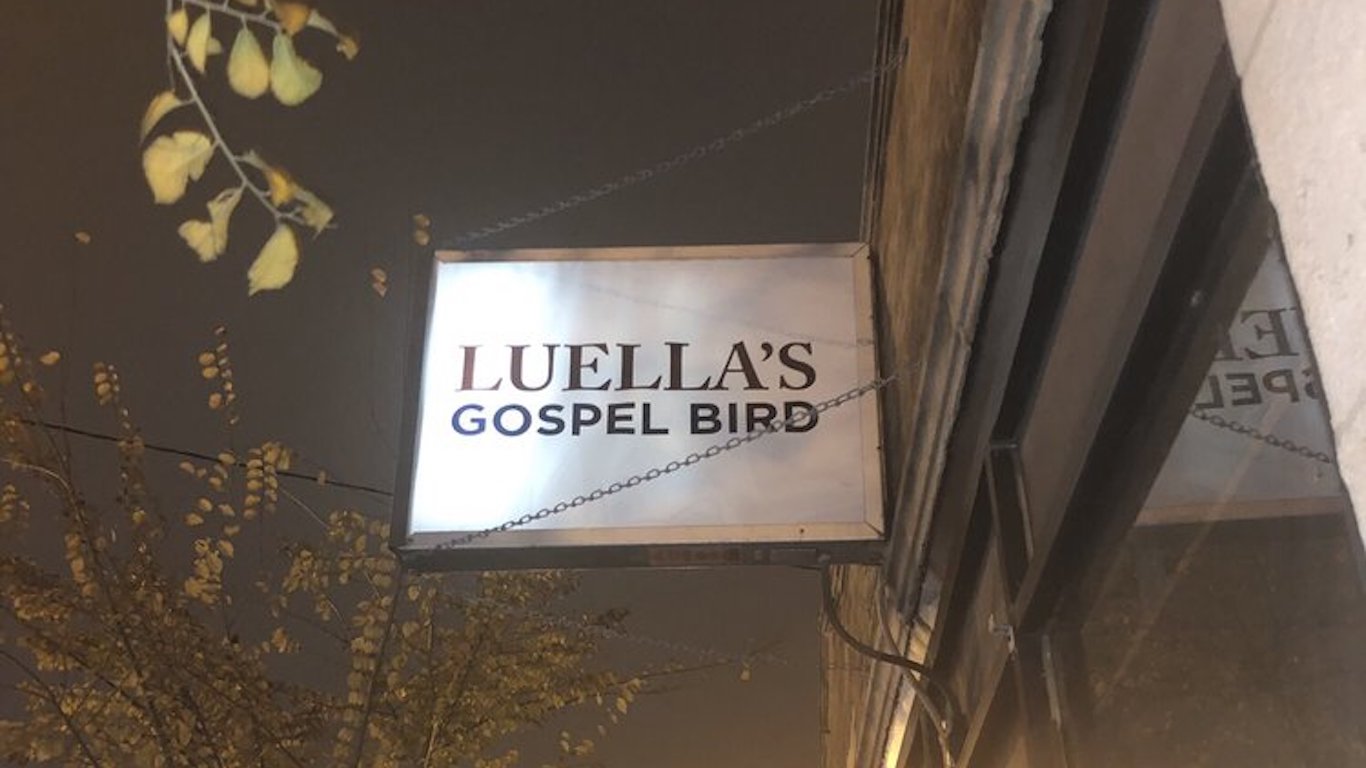
Illinois: Luella’s Gospel Bird
> Location: Chicago
A fried chicken specialist in Chicago’s Bucktown neighborhood, opened in 2018, Luella’s has gone out of business as a result of the pandemic closing. The original location, in Lincoln Square, continues on, doing takeout and delivery, and plans to reopen when the situation stabilizes.
[in-text-ad]
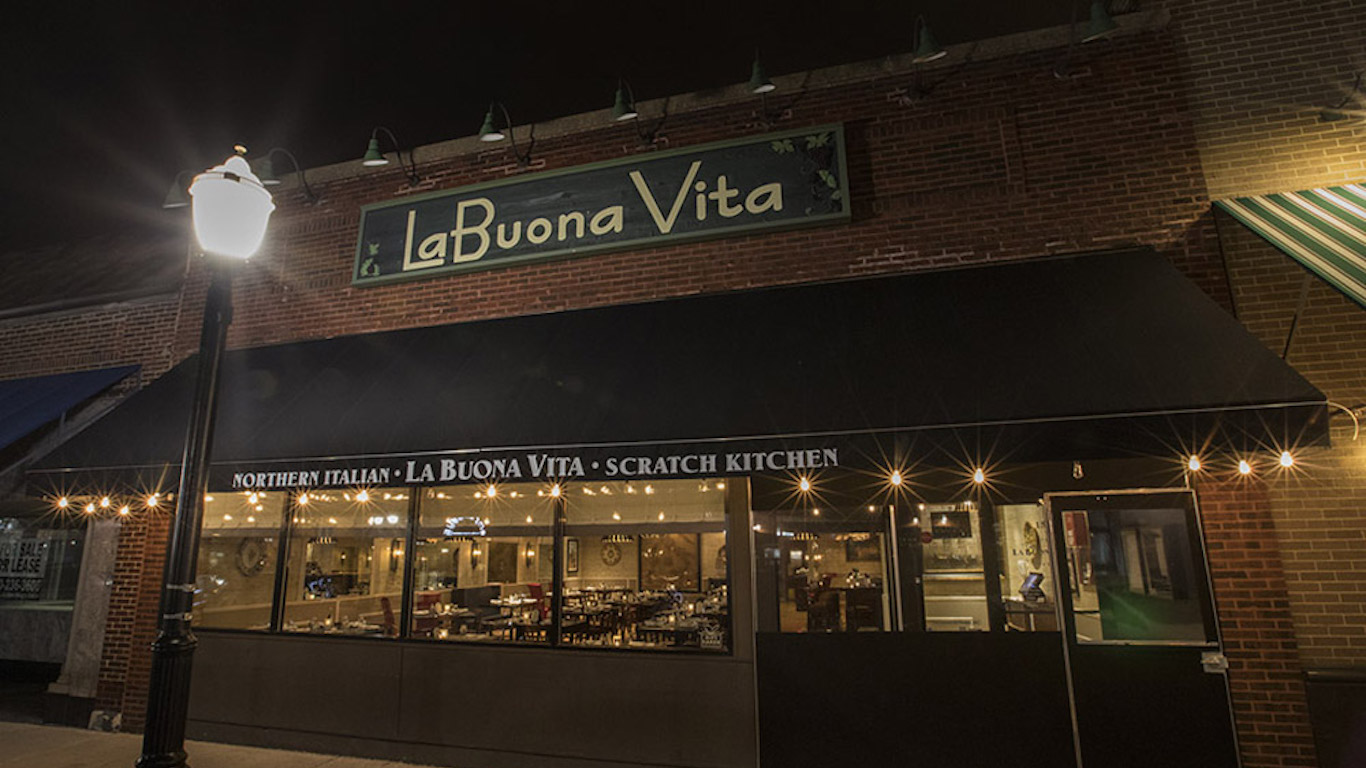
Illinois: La Buona Vita
> Location: La Grange
Describing the combination of the state-mandated restaurant-closing order and overall concern about the coronavirus as “the perfect storm,” the owner of this six-year-old high-end northern Italian place in a Chicago suburb announced in late March that he had “no choice but to close.”
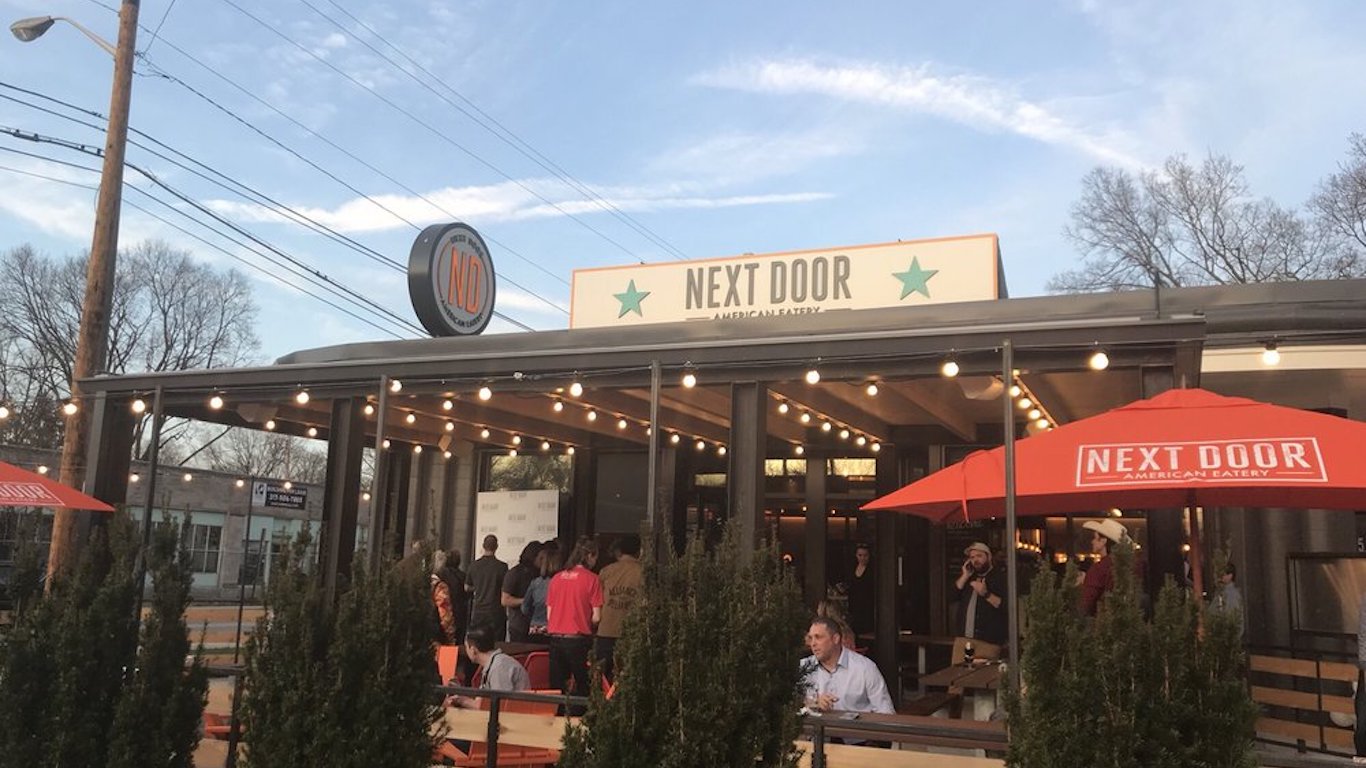
Indiana: Next Door American Eatery
> Location: Indianapolis
This casual farm-to-table restaurant has closed indefinitely, though a spokesperson left open the possibility that it could reopen “once we get through this pandemic.” Its staff has been permanently let go in the meantime. The place, which debuted in 2016, is owned by Kimball Musk, younger brother of Tesla boss and serial entrepreneur Elon Musk.
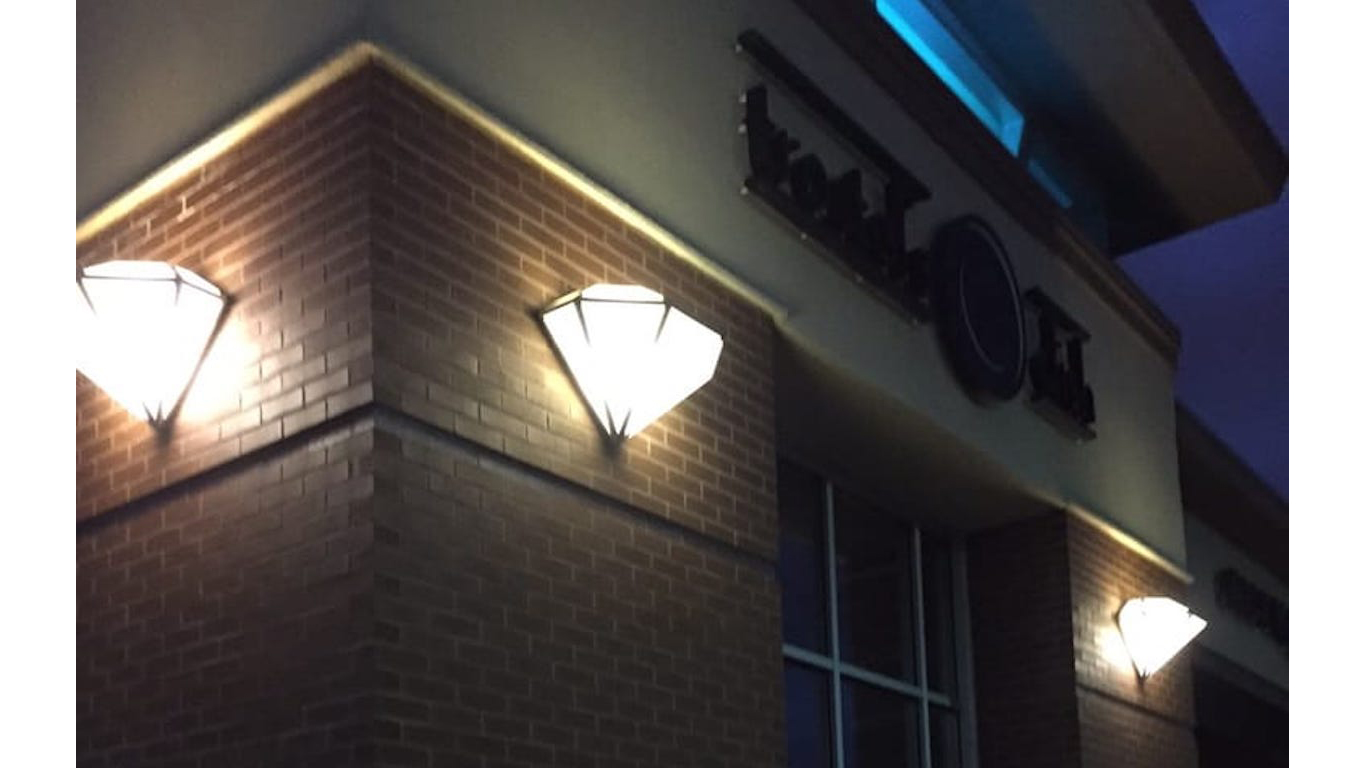
Iowa: Trostel’s Dish
> Location: Clive
Open since 2005, this small-plates restaurant in the Des Moines metropolitan area closed temporarily in March like other Iowa establishments. On April 14, however, owner Suzanne Summy announced that she had made the “heart-wrenching” decision not to renew her lease and to close for good.
[in-text-ad-2]
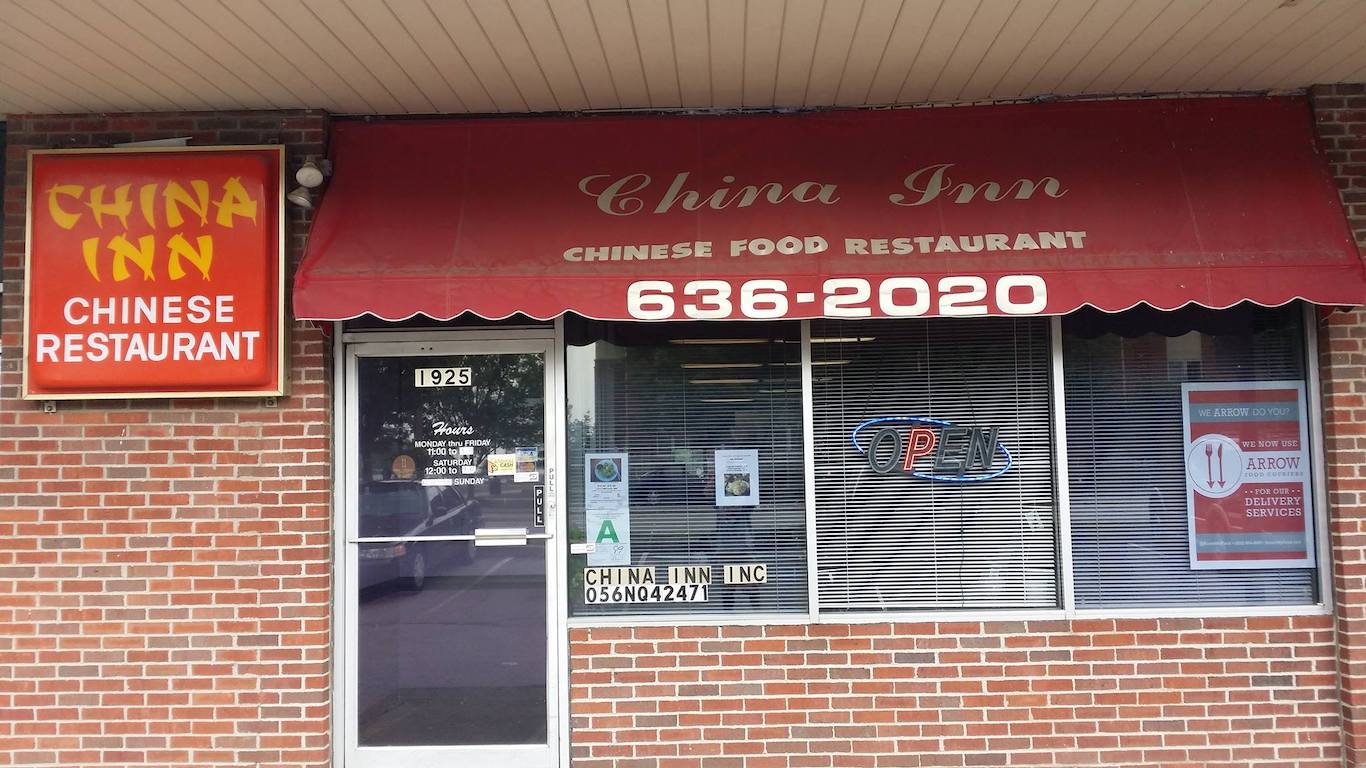
Kentucky: China Inn Restaurant
> Location: Louisville
This 33-year-old family-owned restaurant, known both for its food and for the personality of owner Penny Uraiklang, shut down definitively in late March. Uraiklang had died recently of cancer, but her family promised her they’d keep the place going. The impact of the coronavirus made that impossible, they said.
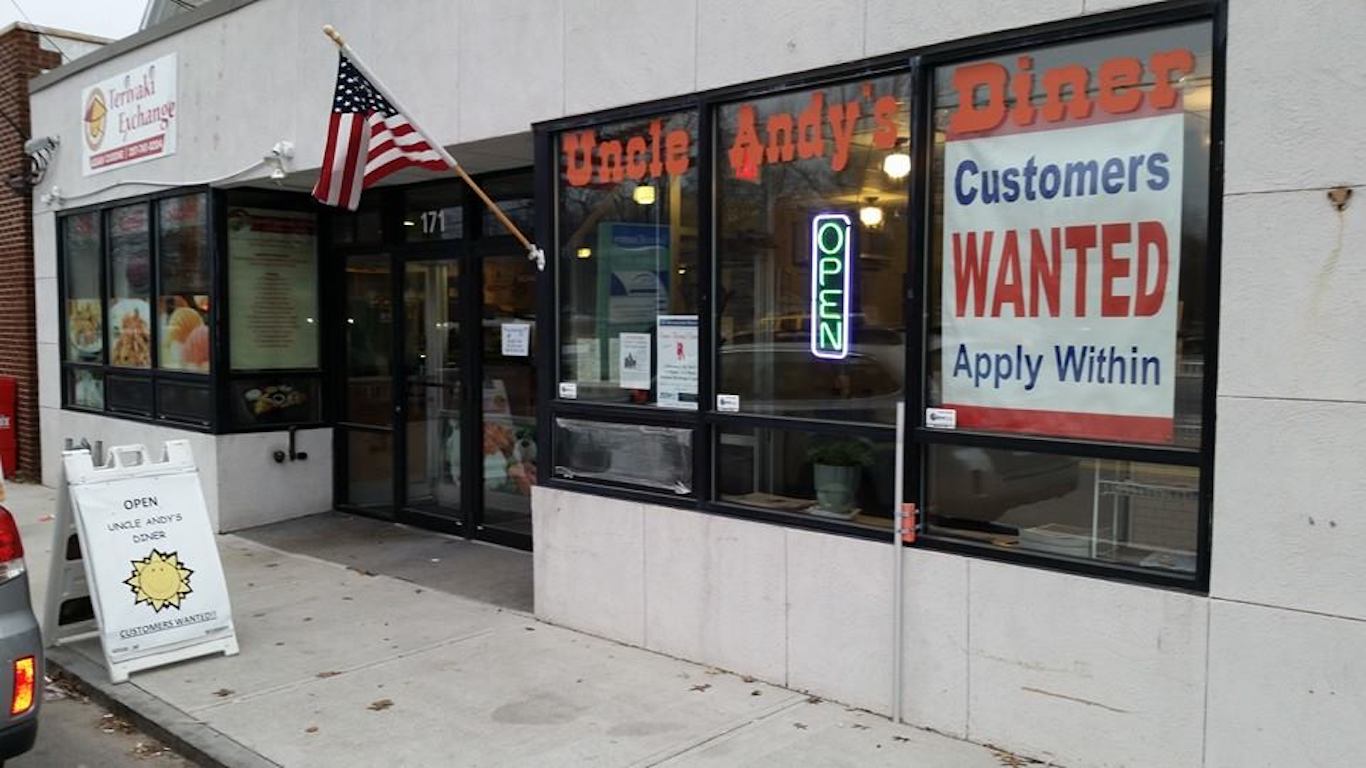
Maine: Uncle Andy’s Diner
> Location: Portland
Uncle Andy’s opened in 1954, establishing a strong local reputation for comforting diner classics — including made-to-order pancakes, which current proprietor Dennis Fogg would shape into dinosaurs or flowers to please his younger customers. The diner was struggling even before the virus hit — it was the subject of a makeover on the Food Network show “Restaurant Impossible” — but as Fogg explained to the Portland Press-Herald, “We’ve always been able to just get by, but now we can’t.”
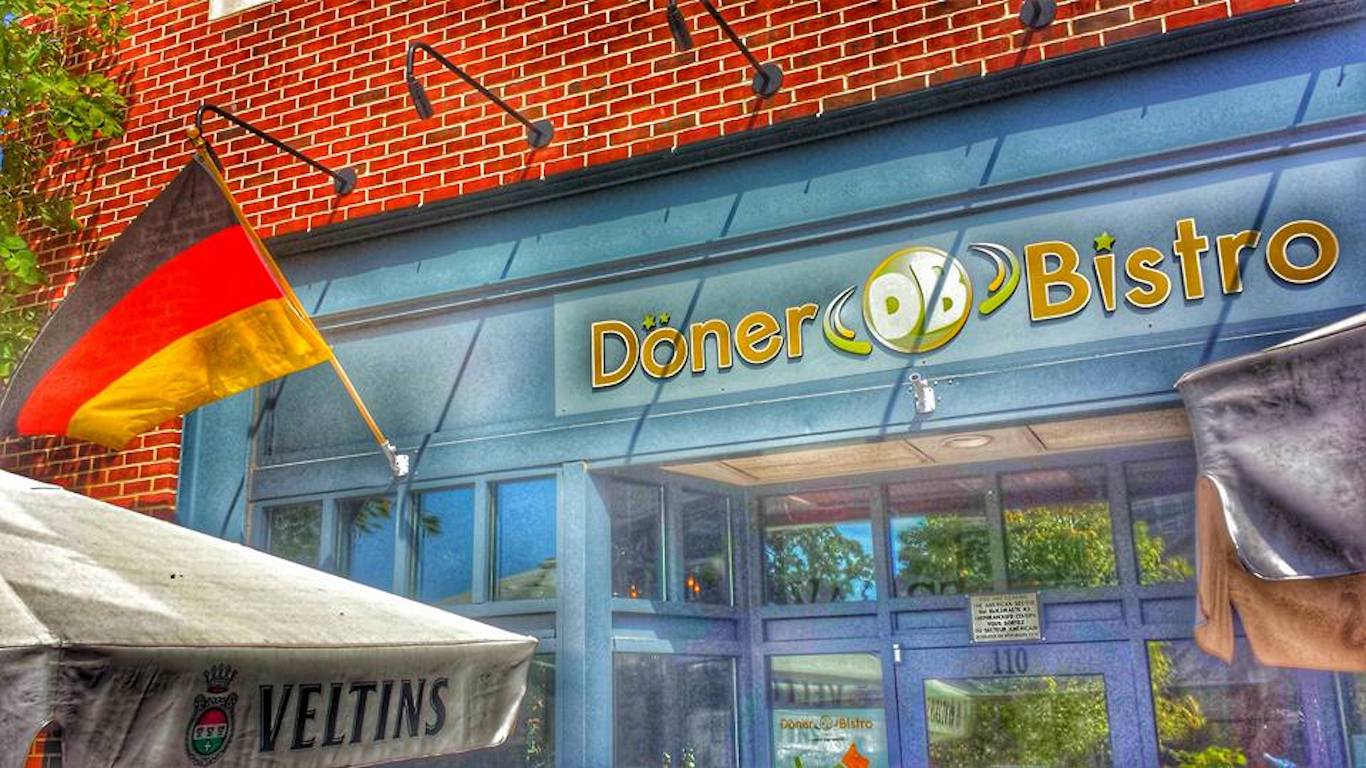
Maryland: Döner Bistro
> Location: Frederick
A German-inspired Biergarten and grill (whose name references the Turkish sandwich that is popular street food in Germany), this establishment, opened in 2014, announced its permanent demise in mid-April. Another location, in Leesburg, Virginia, will remain open.
[in-text-ad]
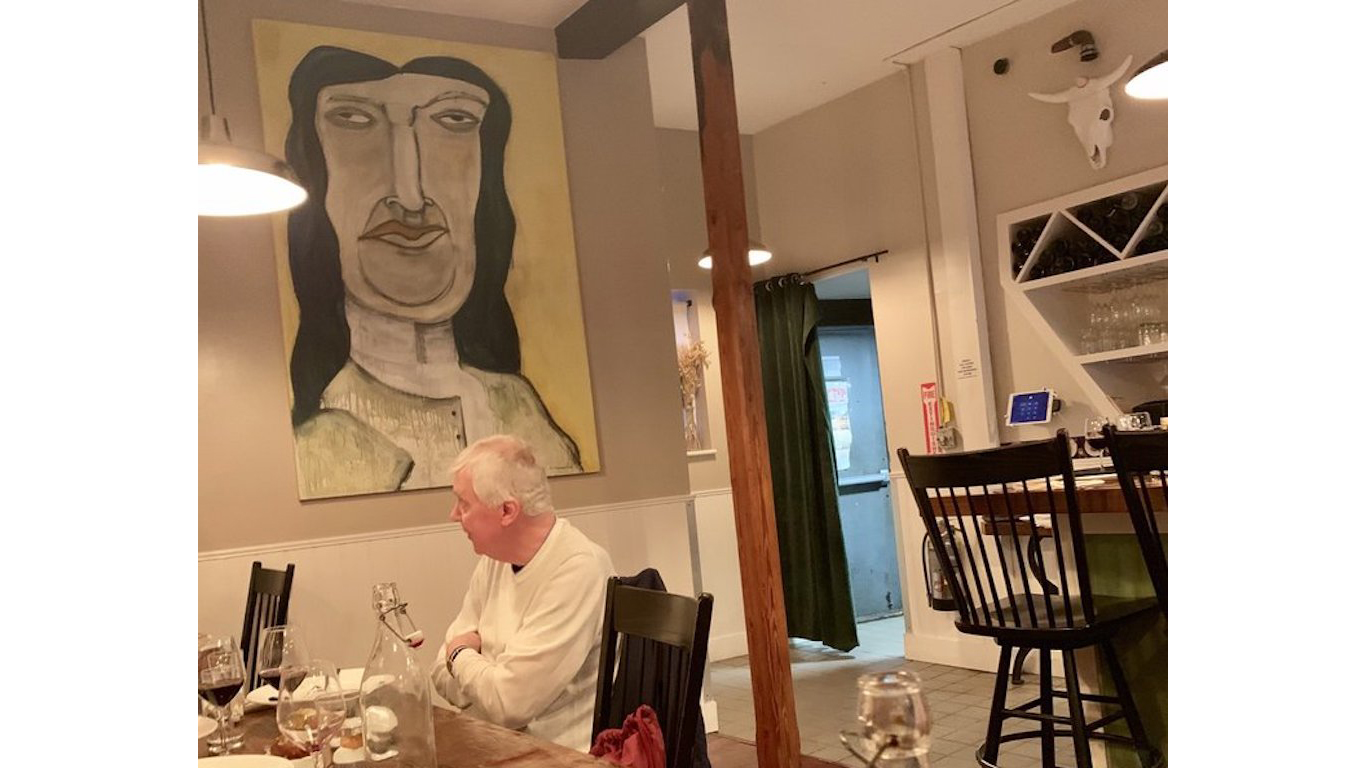
Massachusetts: The Table at Season to Taste
> Location: Cambridge
“Top Chef” finalist Carl Dooley has announced in early May that the 20-seat prix-fixe restaurant he ran, attached to the Season to Taste catering operation, is permanently out of business. Owner Robert Harris is restructuring his catering arm, launching a take-out and delivery brand called Season to Go, but felt that the restaurant had to go. “[T]his is the sad and harsh reality I and the teams I employ all had to face,” he said in a press release.
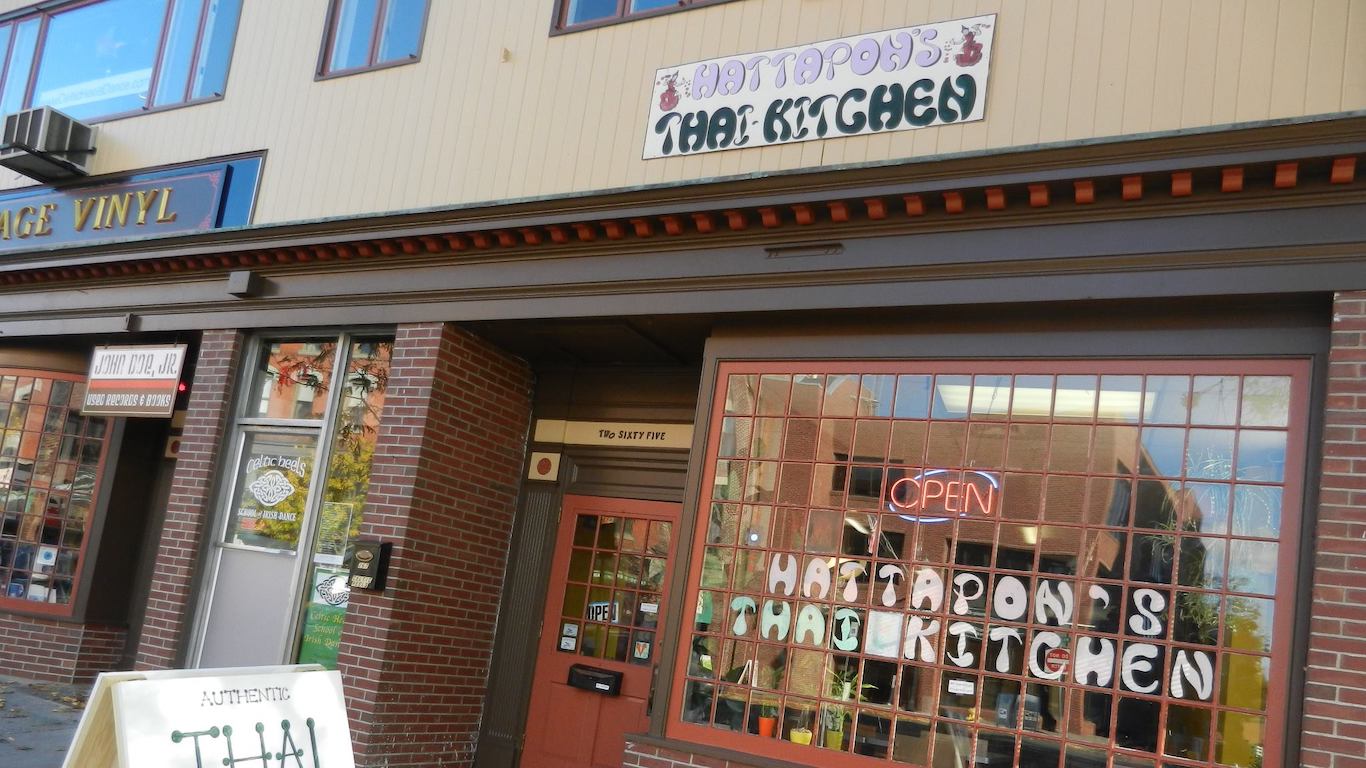
Massachusetts: Hattapon’s Thai Kitchen
> Location: Greenfield
When Massachusetts restaurants begin to reopen, this 14-year-old Thai favorite in the northern part of the state won’t be among them. The owners had already decided to close this spring for economic reasons, but the pandemic hurried things along, and also made it impossible for them to sell food at various local festivals as they had planned.
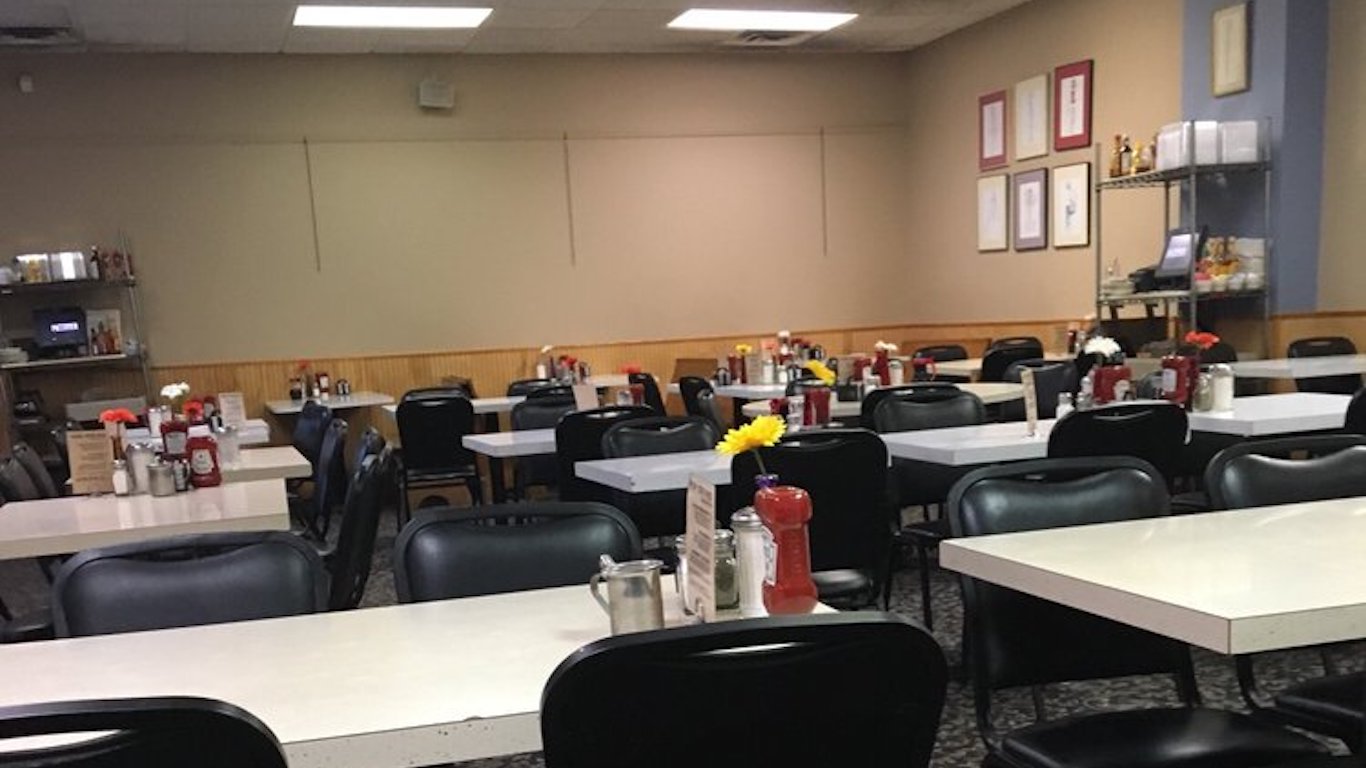
Minnesota: The Egg and I Diner
> Location: Minneapolis
The Egg and I had been serving breakfast dishes daily, for both breakfast and lunch, for more than 30 years. After it closed on March 17 in response to Minnesota governor Tim Walz’s order, the owner decided not to reopen and to sell the property instead. He still plans to reopen his second location, in St. Paul, when possible.
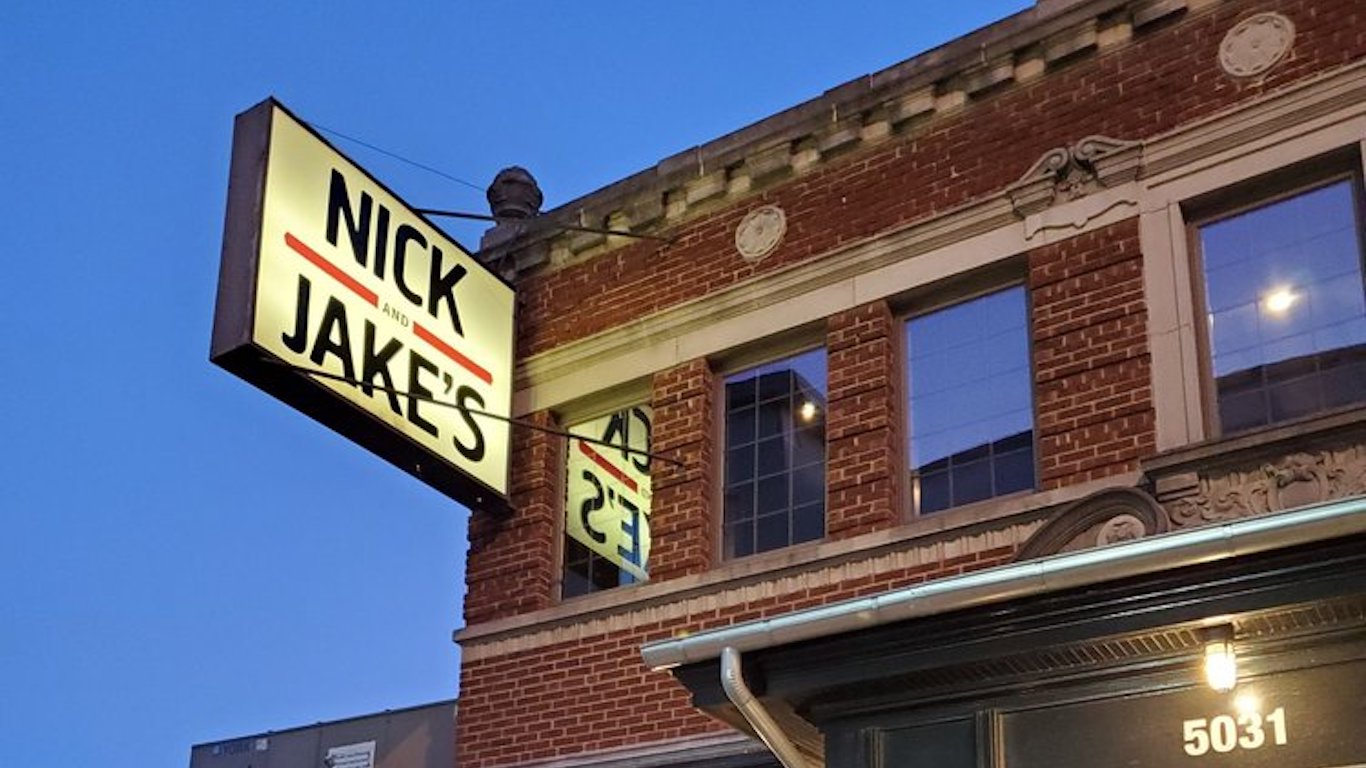
Missouri: Nick and Jake’s
> Location: Kansas City
The Main Street location of this small comfort-food chain — there are three others around the Kansas City area — will not reopen even after the pandemic subsides. The chain announced the decision on Facebook on April 6.
[in-text-ad-2]
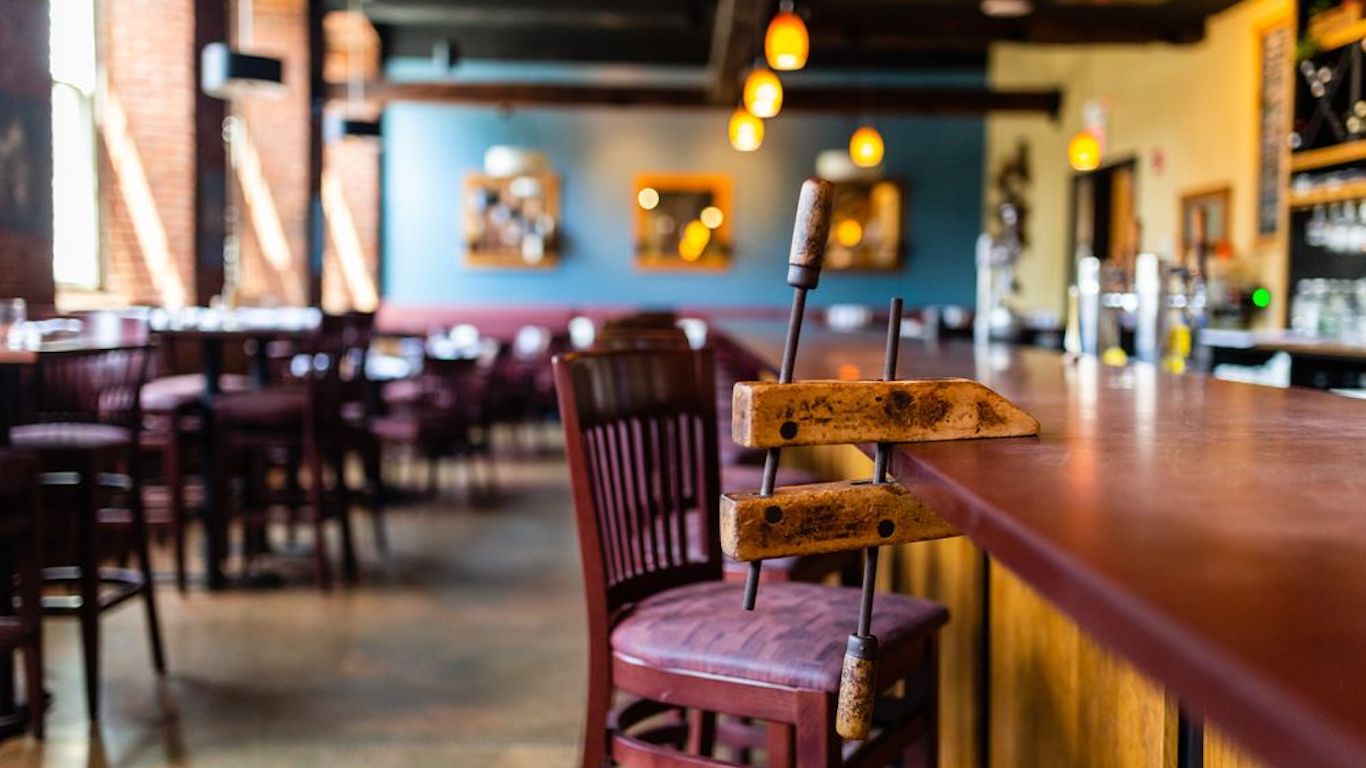
New Hampshire: The Joinery Restaurant
> Location: Newmarket
The proprietor of this six-year-old farm-to-table restaurant near Portsmouth decided in mid-March not to reopen even when he’s allowed to. “I didn’t feel it was prudent to take on more debt” that might be difficult to pay back, he said.
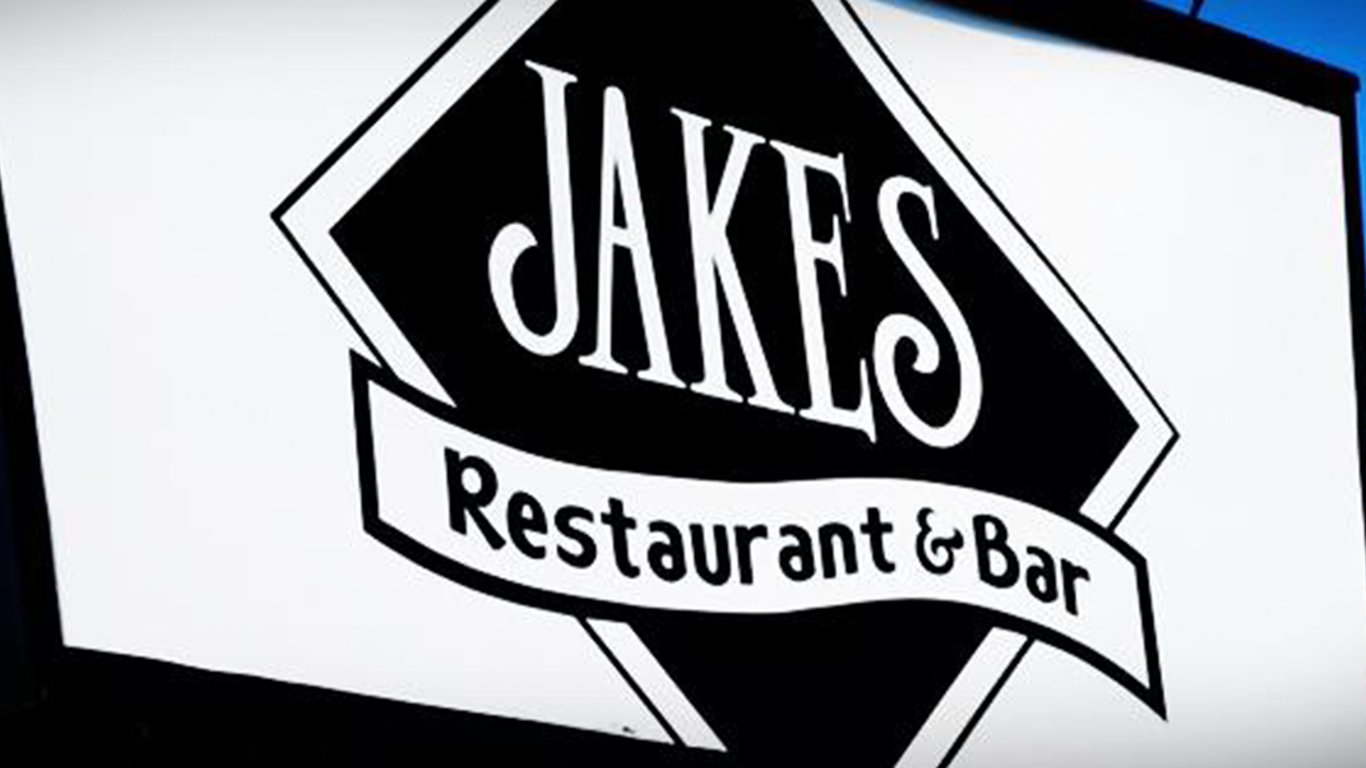
New Jersey: Jake’s Restaurant & Bar
> Location: Flemington
A staple in Flemington, a Hunterdon County town southwest of Newark, for almost 30 years, Jake’s was a combination fine-dining restaurant and sports bar. The owners announced on April 9 that their temporary closing had become permanent.
[in-text-ad]
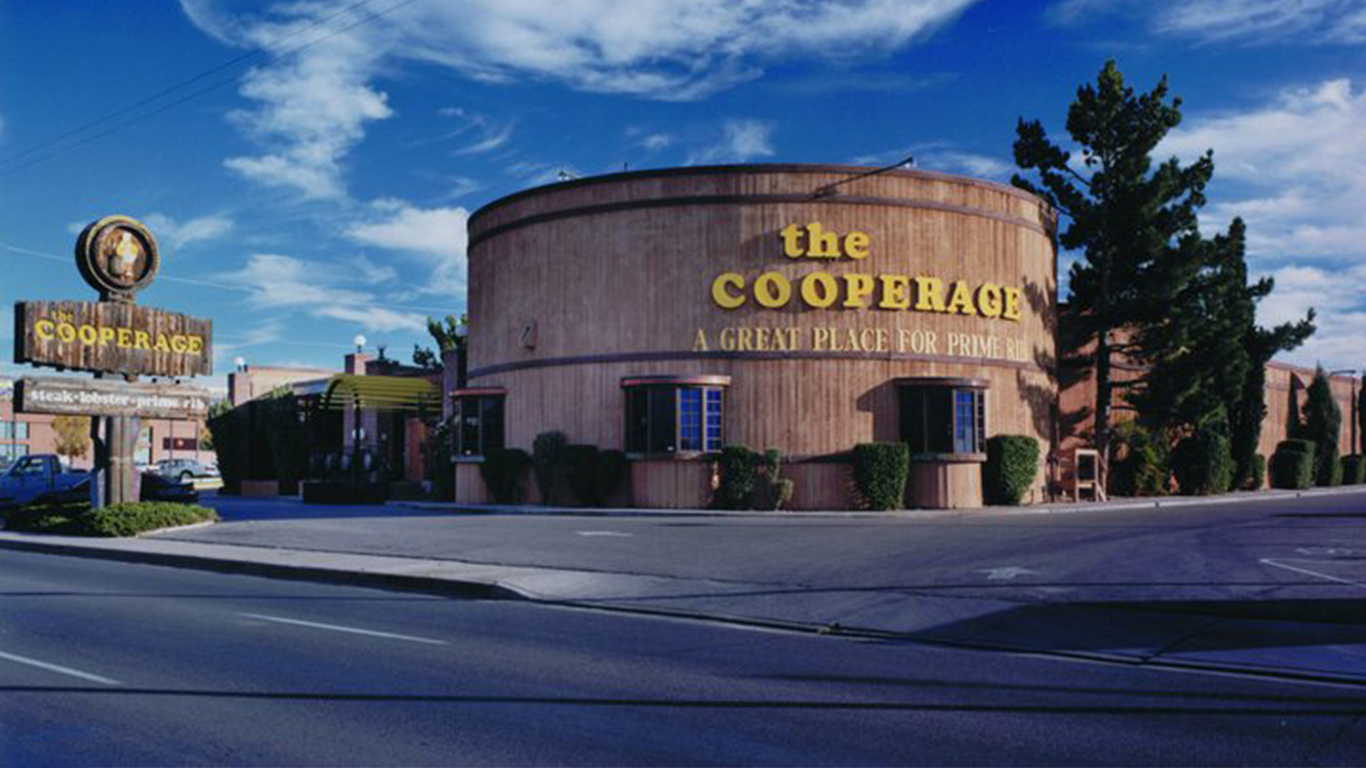
New Mexico: The Cooperage
> Location: Albuquerque
Opened in 1976, this prime rib restaurant, also noted for its salad bar, announced at the beginning of April that it had shuttered for good. The loss of wedding and catering business was a contributing factor.
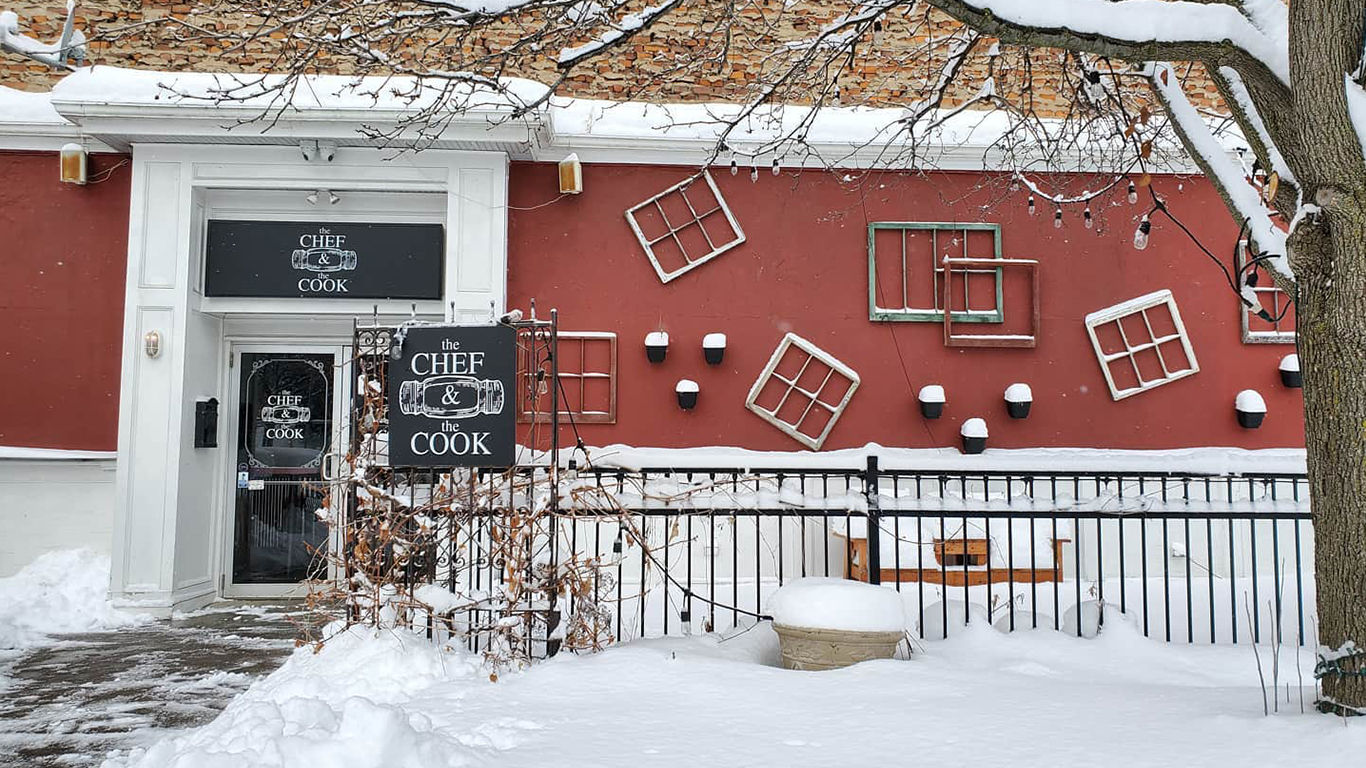
New York: The Chef & the Cook
> Location: Baldwinsville
This two-year-old establishment in the Syracuse metropolitan area became the first restaurant in Central New York State to announce that it would not reopen once the coronavirus shut-down ended. The owners decided in late March to pull the plug, noting that their lease was due for renewal soon anyway.
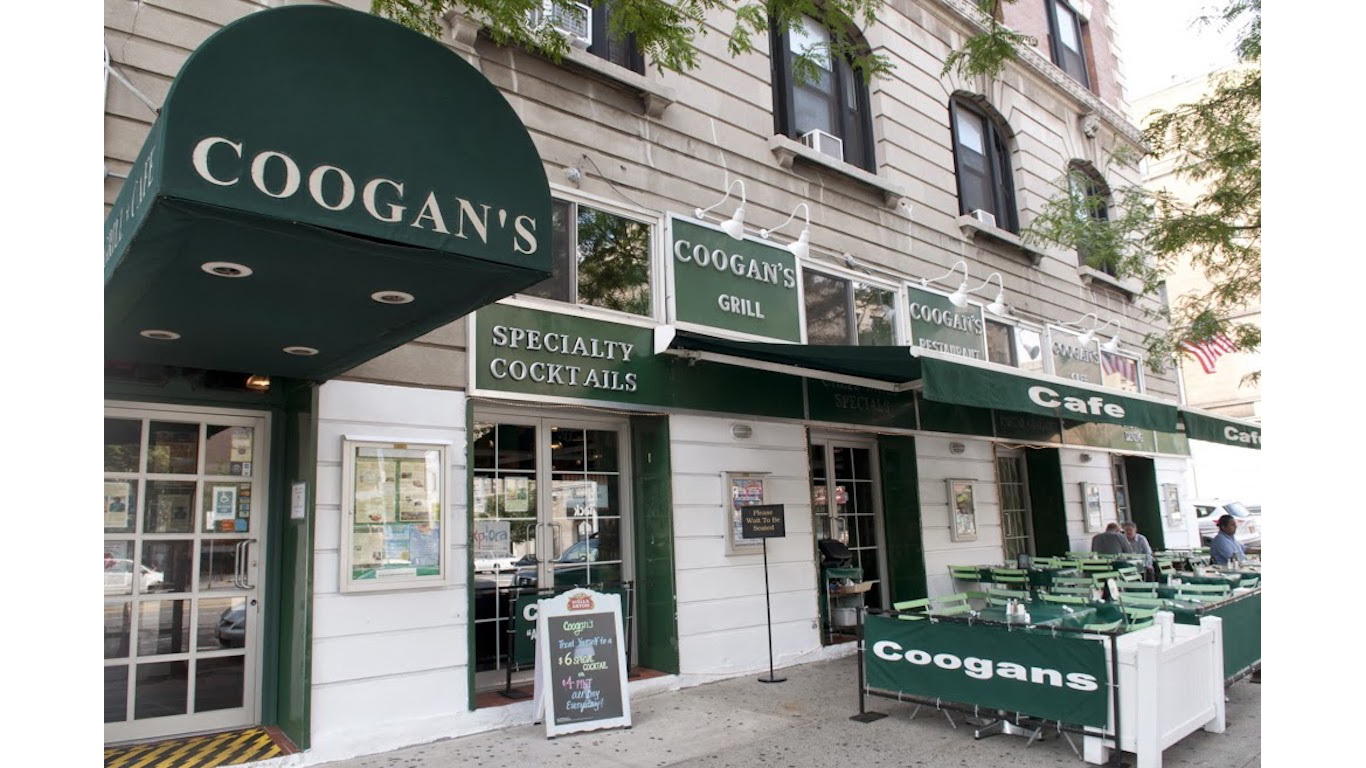
New York: Coogan’s
> Location: New York City
This Irish pub and restaurant in Manhattan’s Washington Heights neighborhood — which styled itself “America’s #1 Runners Restaurant” — closed its doors on March 17 for what was initially going to be a limited period of time. On April 21, however, the owners posted a statement on the Coogan’s website saying “We had hoped to open them again but sadly that is not possible.”
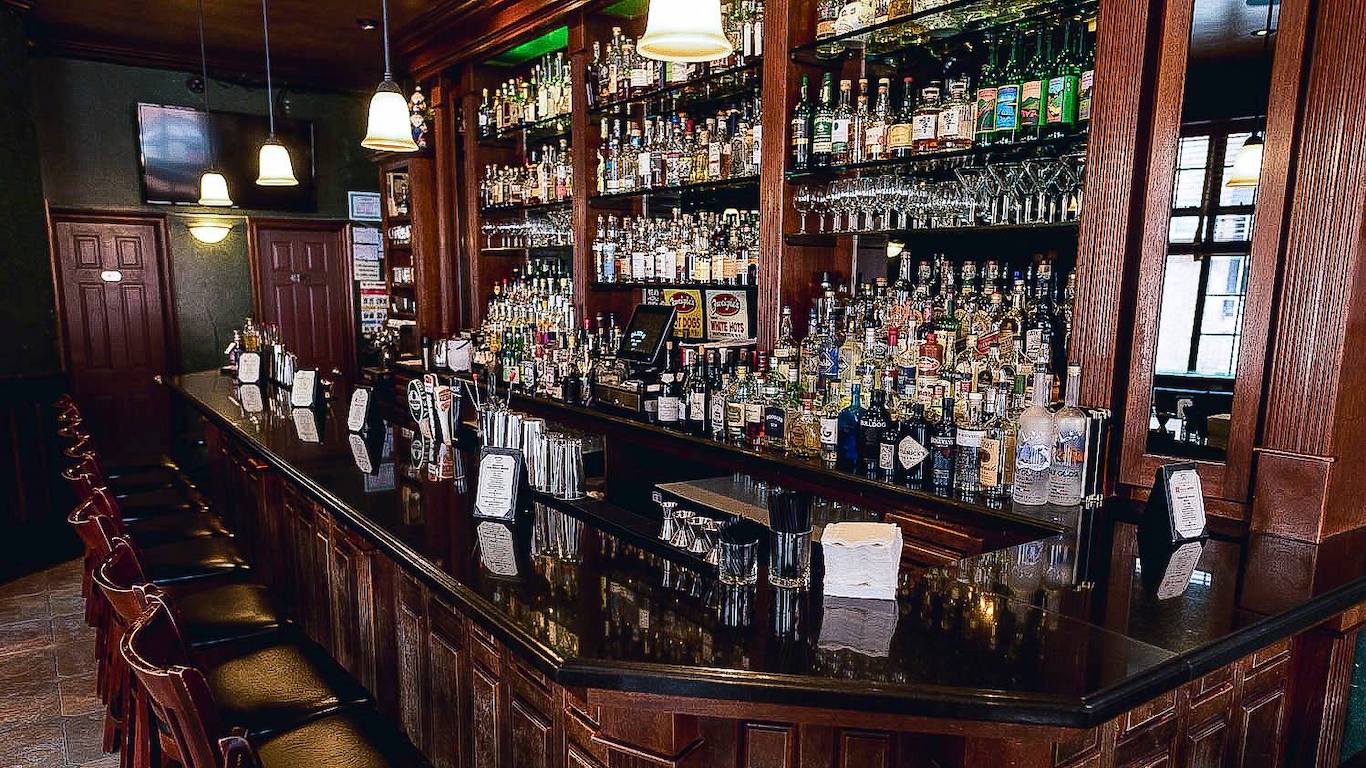
New York: Daddy-O
> Location: New York City
A Greenwich Village dive bar and restaurant, Daddy-O was a favorite hangout for New York City chefs until it closed up earlier this month. It had an upstate New York vibe, as expressed by dishes like Buffalo wings and the Rochester specialty the “garbage plate” (involving fried potatoes, hot dogs, baked beans, meat sauce, and other ingredients). Owner Phil Casaceli has confirmed the closing but provided no details about the restaurant’s demise.
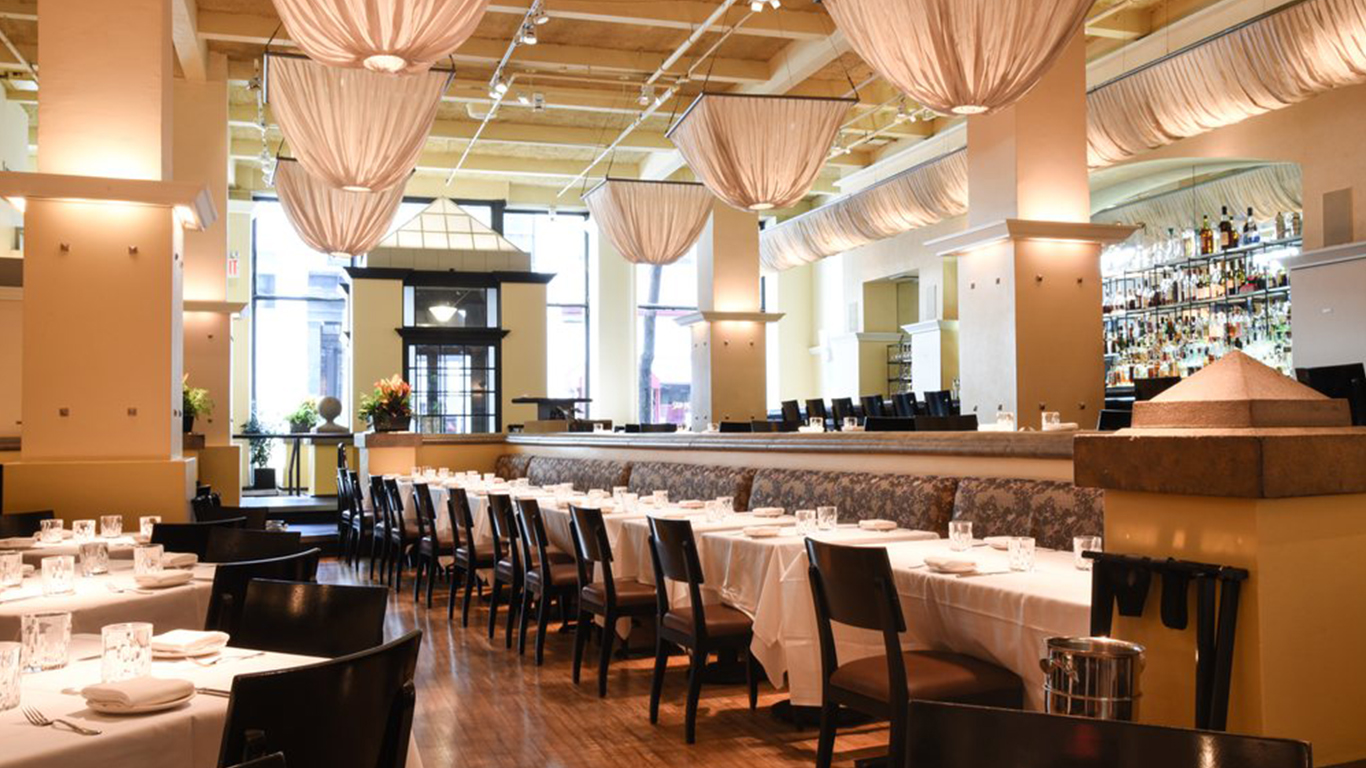
New York: Gotham Bar & Grill
> Location: New York City
The most famous restaurant to shut down for good in the face of the pandemic — so far — Gotham had recently weathered the departure of chef Alfred Portale, who had been in charge of the kitchen for more than 30 years. However, a statement by a spokesperson explained, “the unforeseen situation created by the coronavirus has made operation of the restaurant untenable.”
[in-text-ad-2]
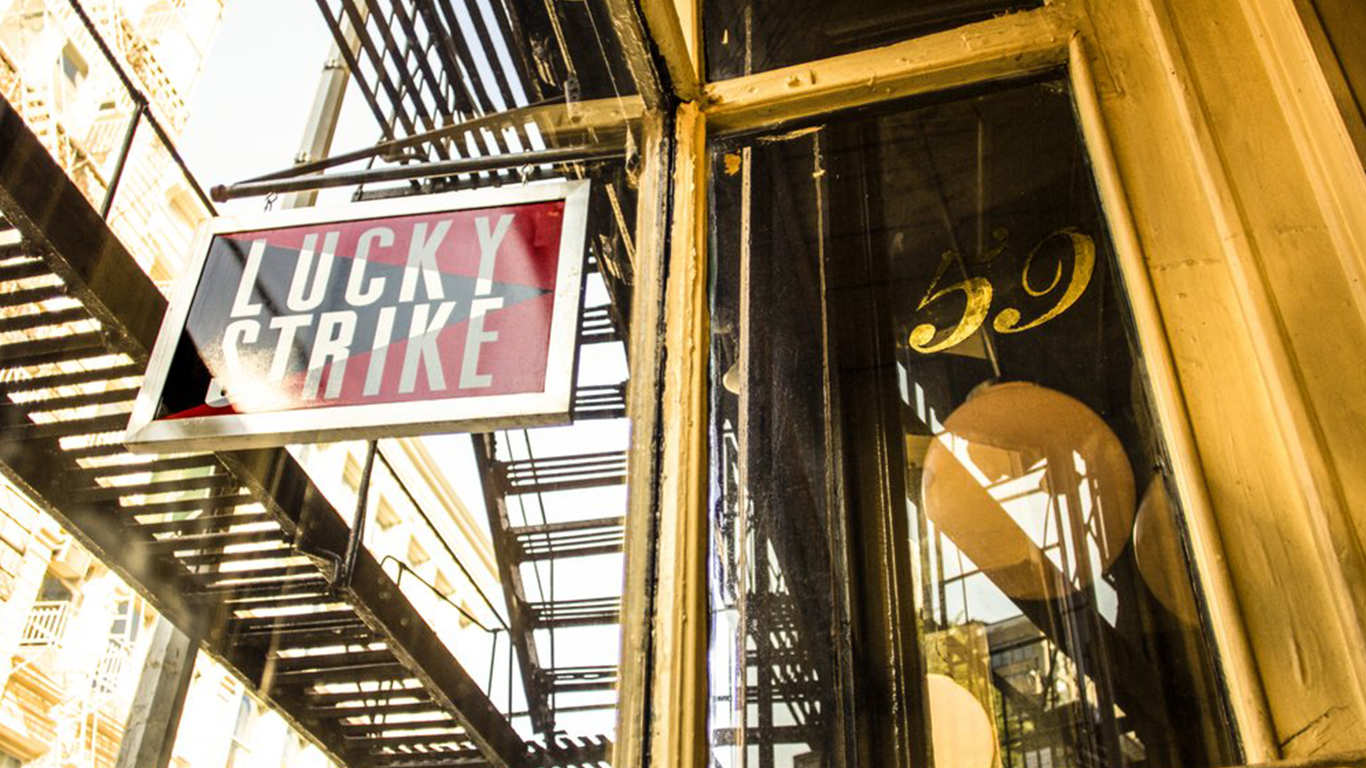
New York: Lucky Strike
> Location: New York City
Opened in 1989 by noted Manhattan restaurant mogul Keith McNally, this SoHo bistro initially provided takeout and delivery services when in-house dining was banned, like many other places. It stopped doing that in late March, before announcing in April that it would not be reopening. McNally — whose other restaurants include the acclaimed Balthazar and Minetta Tavern — was himself hospitalized in London with COVID-19 in early April.
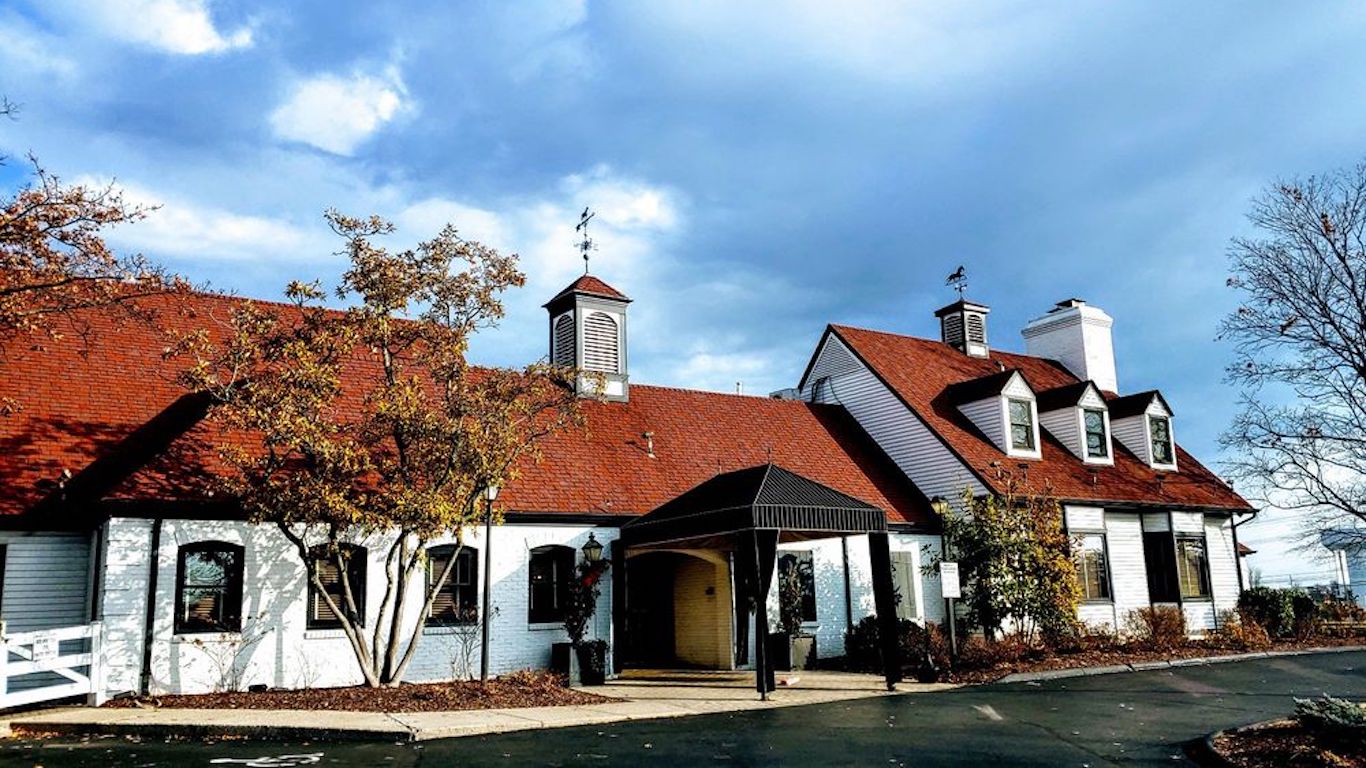
Ohio: Parkers Blue Ash Tavern
> Location: Cincinnati
A suburban Cincinnati favorite, serving steak and seafood in an upscale environment for almost 40 years, the Tavern has posted a message on its website reading in part “Due to the uncertainty associated with the impact of the COVID-19 pandemic on the restaurant industry, and Parkers Blue Ash Tavern in particular, it has been very difficult for us to plan a reopening.”
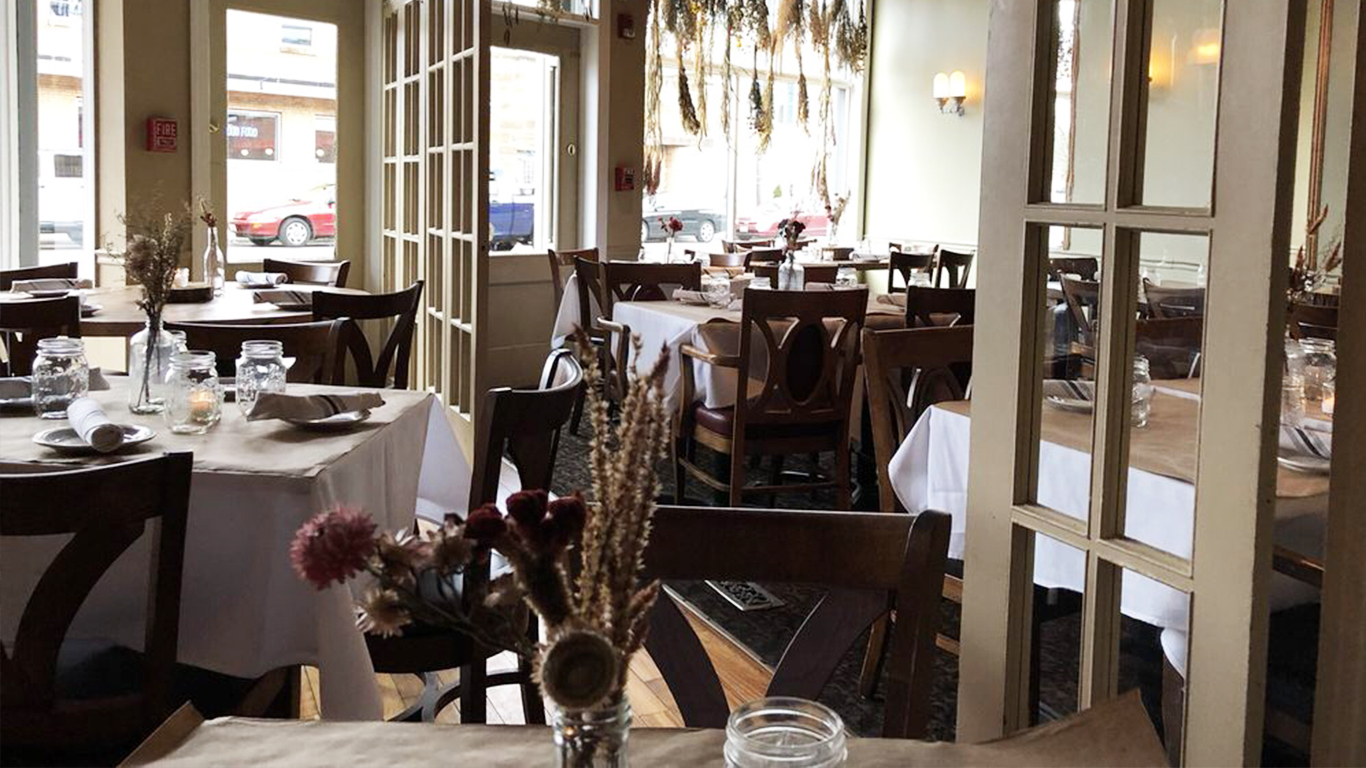
Ohio: Spice Kitchen & Bar
> Location: Cleveland
Citing cancellations for its catering business as well as declining restaurant revenues, this eight-year-old establishment — named one of Cleveland Magazine’s best restaurants of the year in 2019 — announced in mid-March that it was shuttering permanently. The catering company will continue to operate.
[in-text-ad]
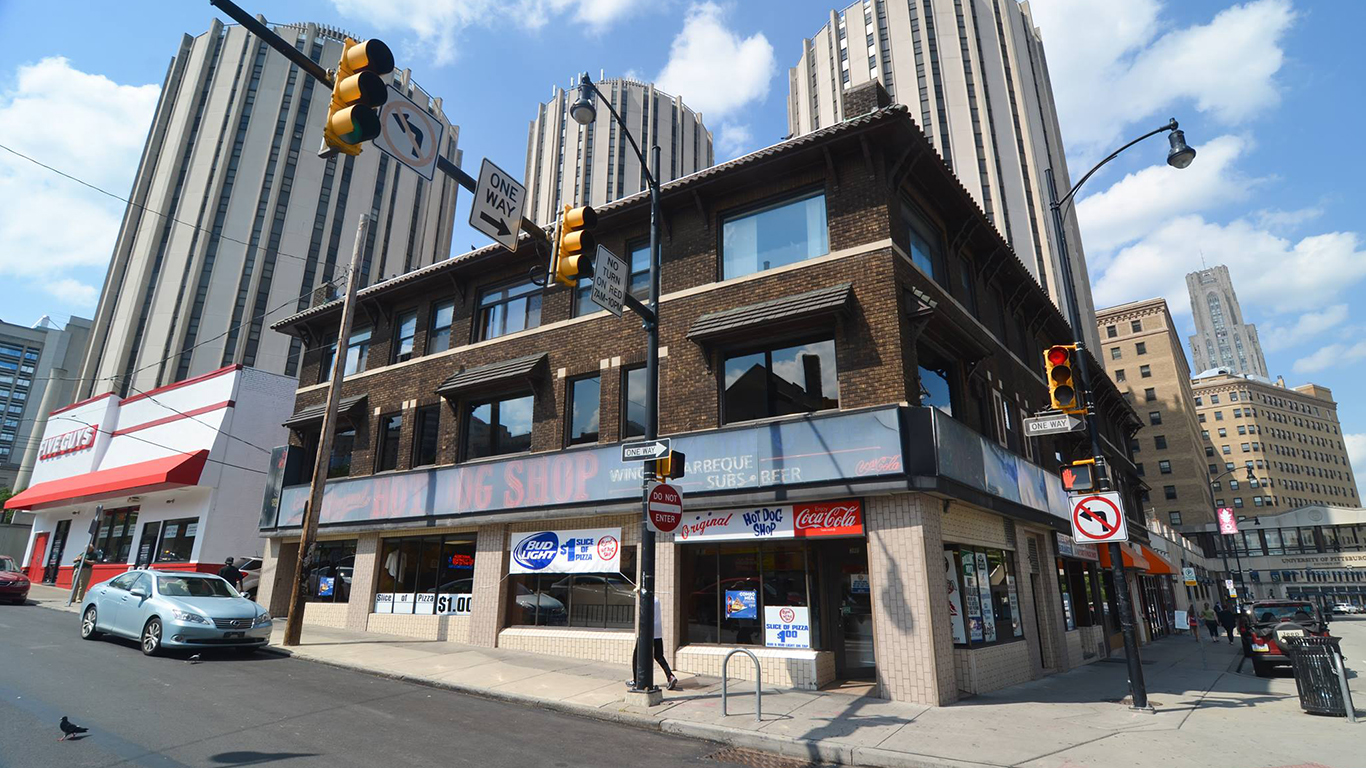
Pennsylvania: Original Hot Dog Shop
> Location: Pittsburgh
Opened in 1960 across the street from now-defunct Forbes Field, then home of the Pittsburgh Pirates, this iconic institution in the center of the University of Pittsburgh campus has apparently served its last burgers, dogs, and famous fries. Though there has been no official announcement, reports confirm that “The O,” as it was known, has been emptied out, and its website no longer operates.
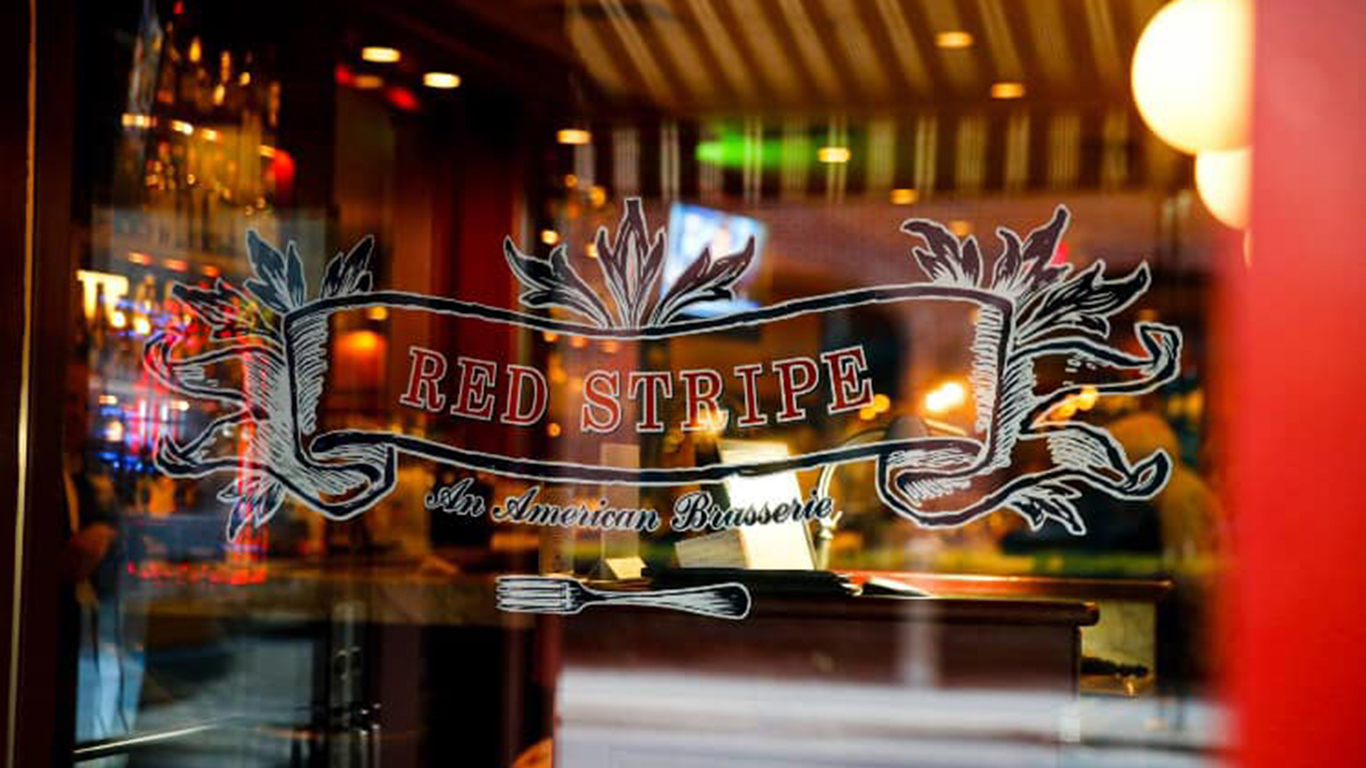
Rhode Island: Red Stripe
> Location: East Greenwich
Though its 15-year-old Providence location will reopen, the East Greenwich iteration of this “American brasserie,” launched in late 2014, will not. The owners cite “current conditions.”
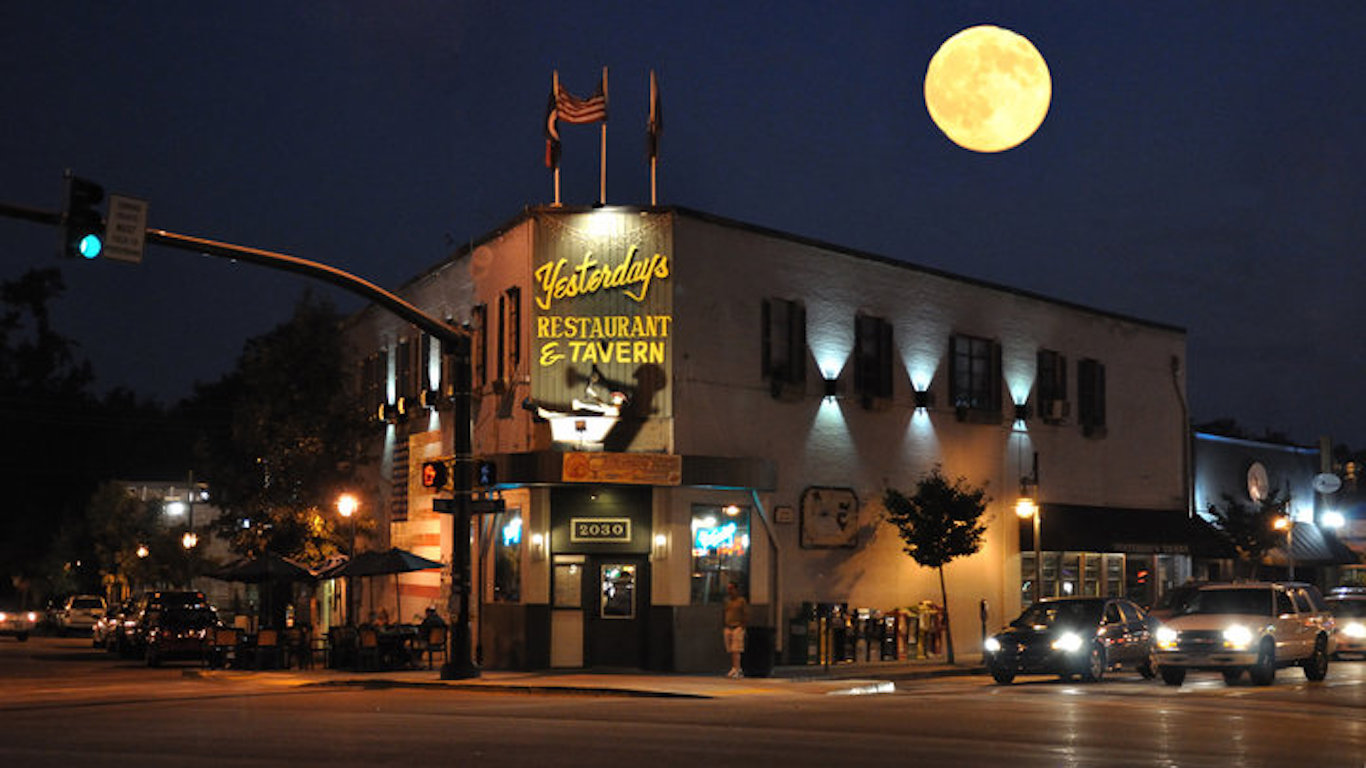
South Carolina: Yesterdays Restaurant and Tavern
> Location: Columbia
This 43-year-old institution in the South Carolina capital’s Five Points neighborhood closed in early April, expecting to possibly reopen. However, co-owner Scottie MacRae told the newspaper The State in late April that “with heavy but grateful hearts…we’ve decided to hang it up for good.”
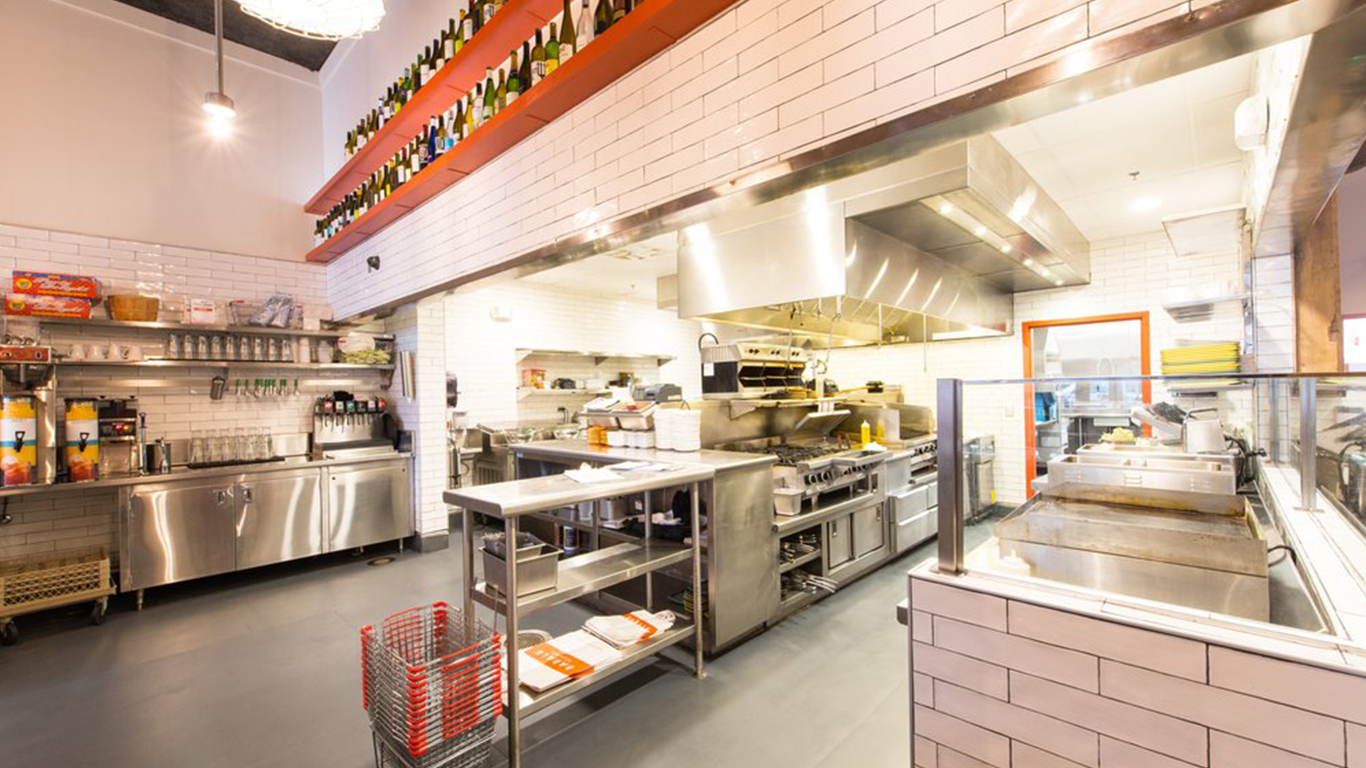
Tennessee: Babalu Tacos and Tapas
> Location: Knoxville
The Knoxville branch of this four-unit chain announced in late March that it would not reopen after closing in the face of the coronavirus crisis. A second Babalu location, in Birmingham, Alabama, has also shut down for good. Another Tennessee location, in Memphis, and the fourth unit, in Jackson, Mississippi, are expected to reopen when possible.
[in-text-ad-2]
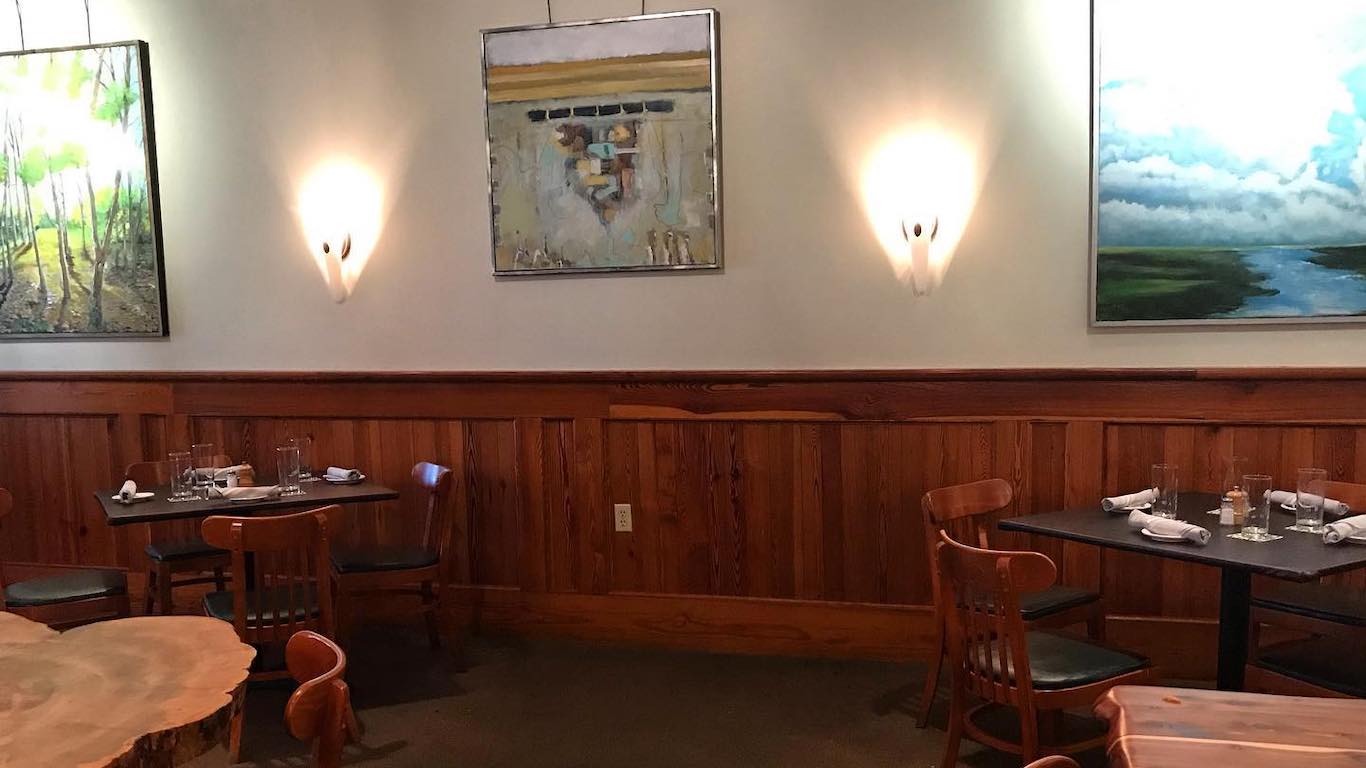
Tennessee: Grove Grill
> Location: Memphis
This restaurant in the Laurelwood Shopping Center would have turned 23 in October, but the owners announced in early May that it would not reopen. Chef-owner Jeffrey Dunham told Memphis Flyer that he had been counting on “early summer business, graduation, Easter, and Mother’s Day and all that to get us going.” Unfortunately, he added, “[W]hen this hit, it just set us too far behind.”
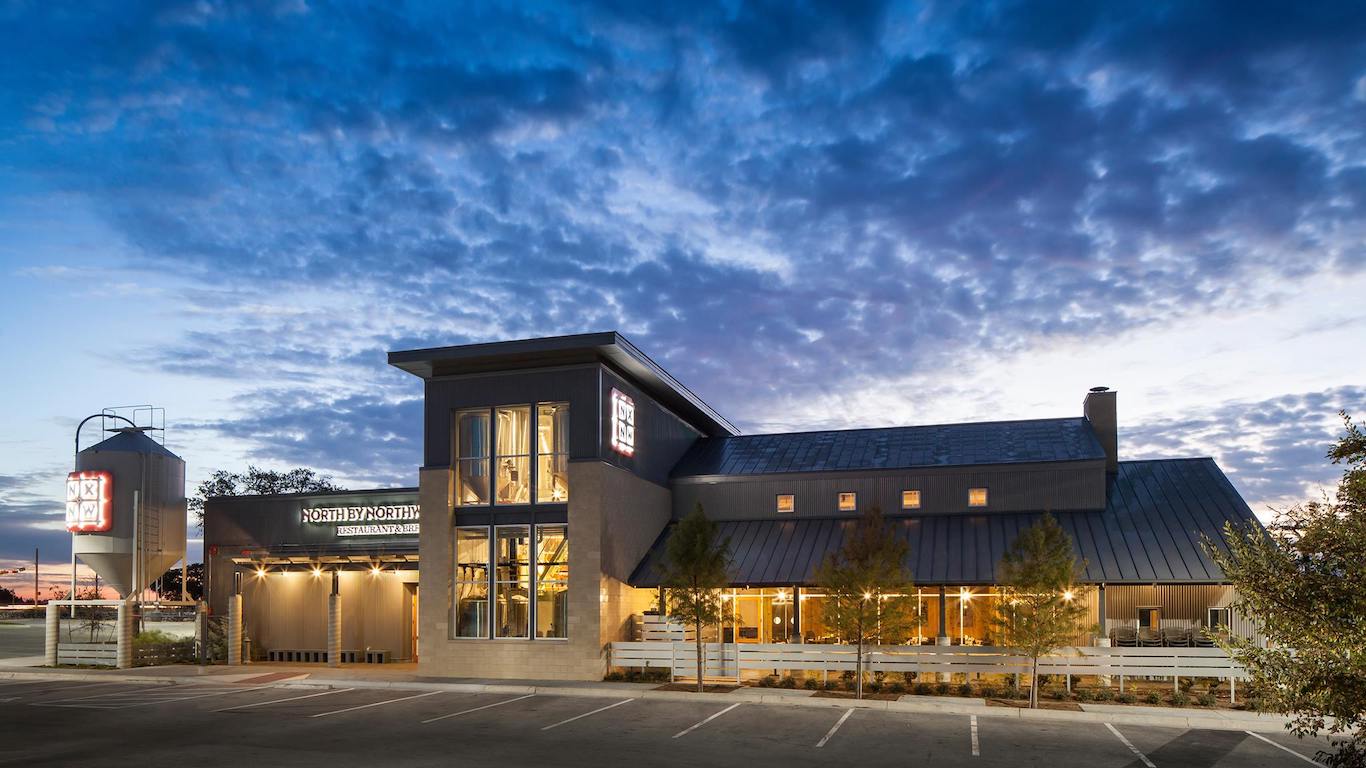
Texas: North by Northwest
> Location: Austin
One of the two oldest brewpubs in the Texas capital, founded in 1999, NXNW, as locals called it, will not reopen. (The abbreviated name is a reference to the popular annual Austin music-and-tech festival South by Southwest, or SXSW.) “We made the call now so our employees could move on in life,” owner Davis Tucker told Austin 360 in mid-April.
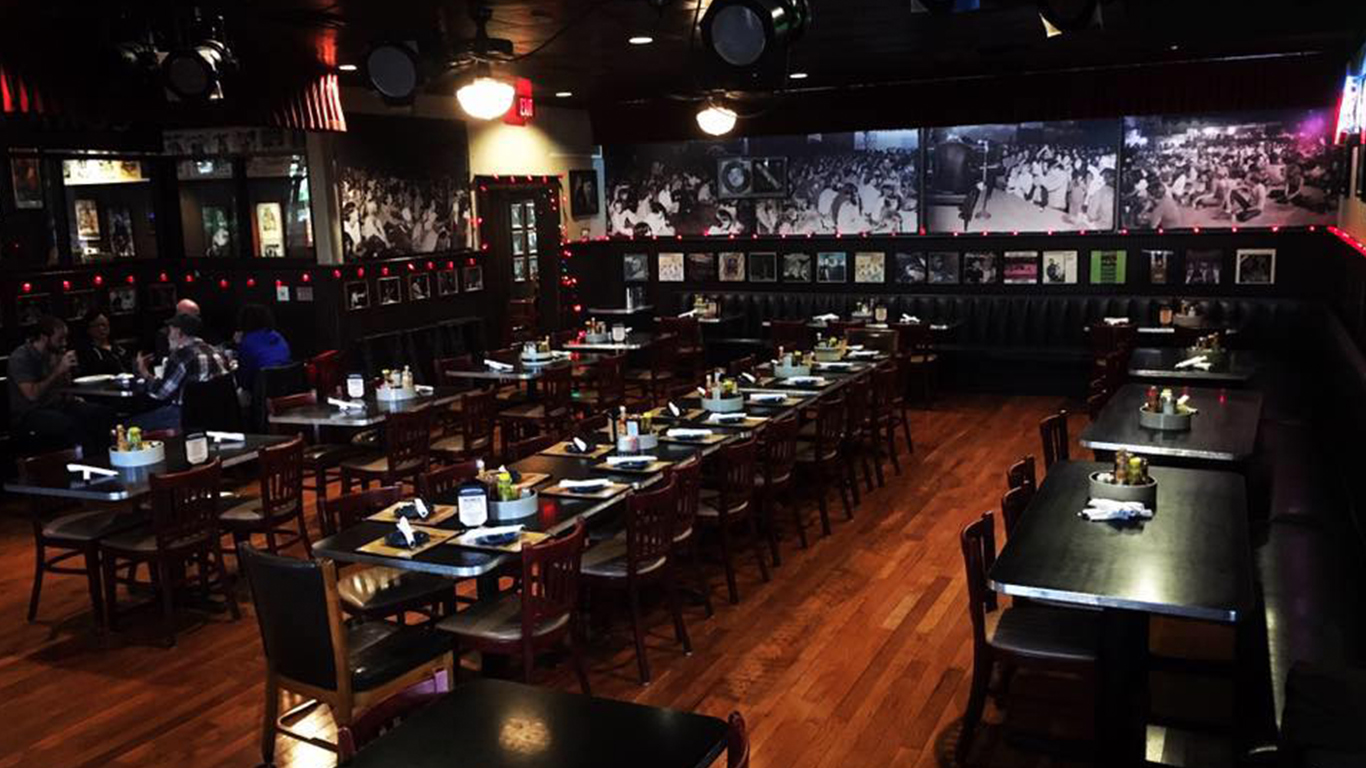
Texas: Threadgill’s
> Location: Austin
Opened as a gas station and beer bar in 1933, this Austin institution evolved into a full-scale restaurant and leading music venue, spawning a second location in 1996. That one closed in 2018, and now the original Threadgill’s is for sale and will not reopen.
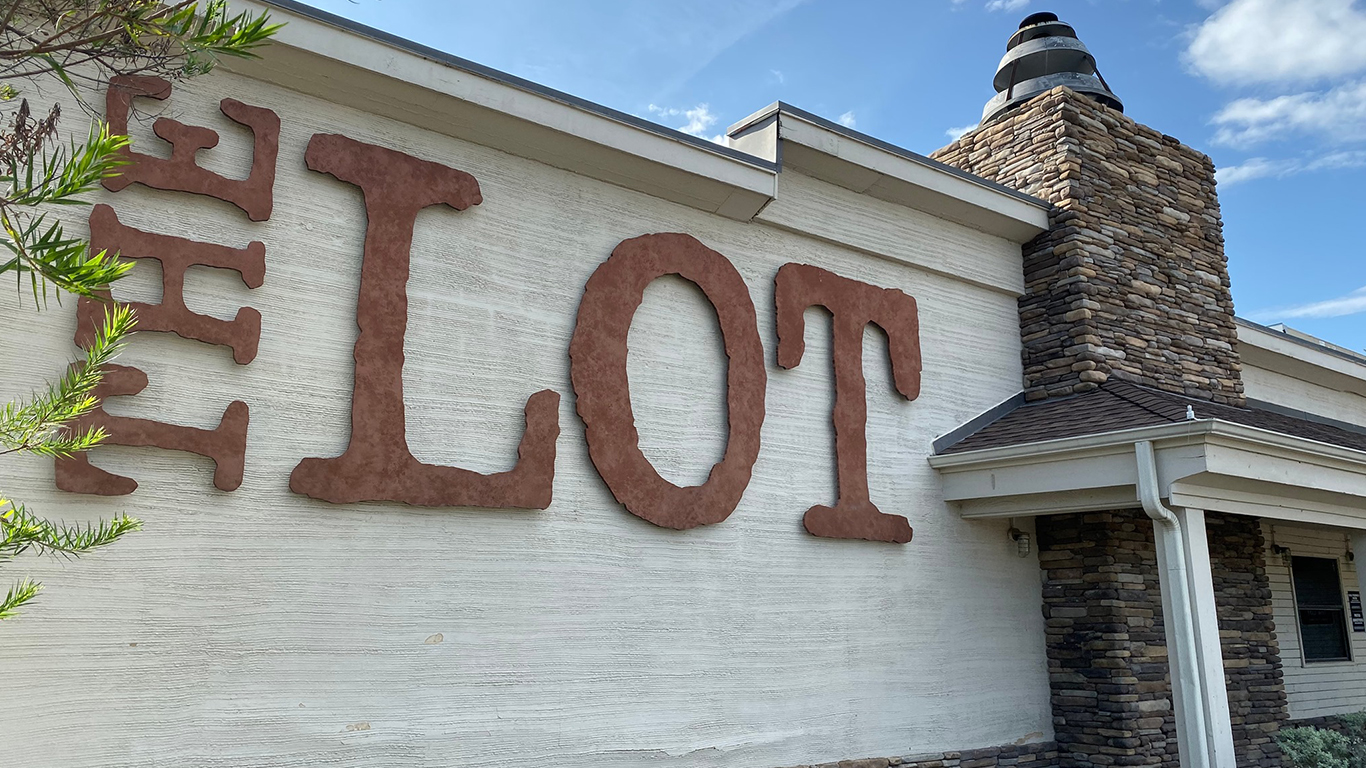
Texas: The LOT
> Location: Dallas
An East Dallas restaurant and beer garden opened in 2013, The LOT announced on April 3 that its state-mandated closing would not be temporary. “Losing a spring season makes it financially impossible to recover,” said owner John McGride.
[in-text-ad]
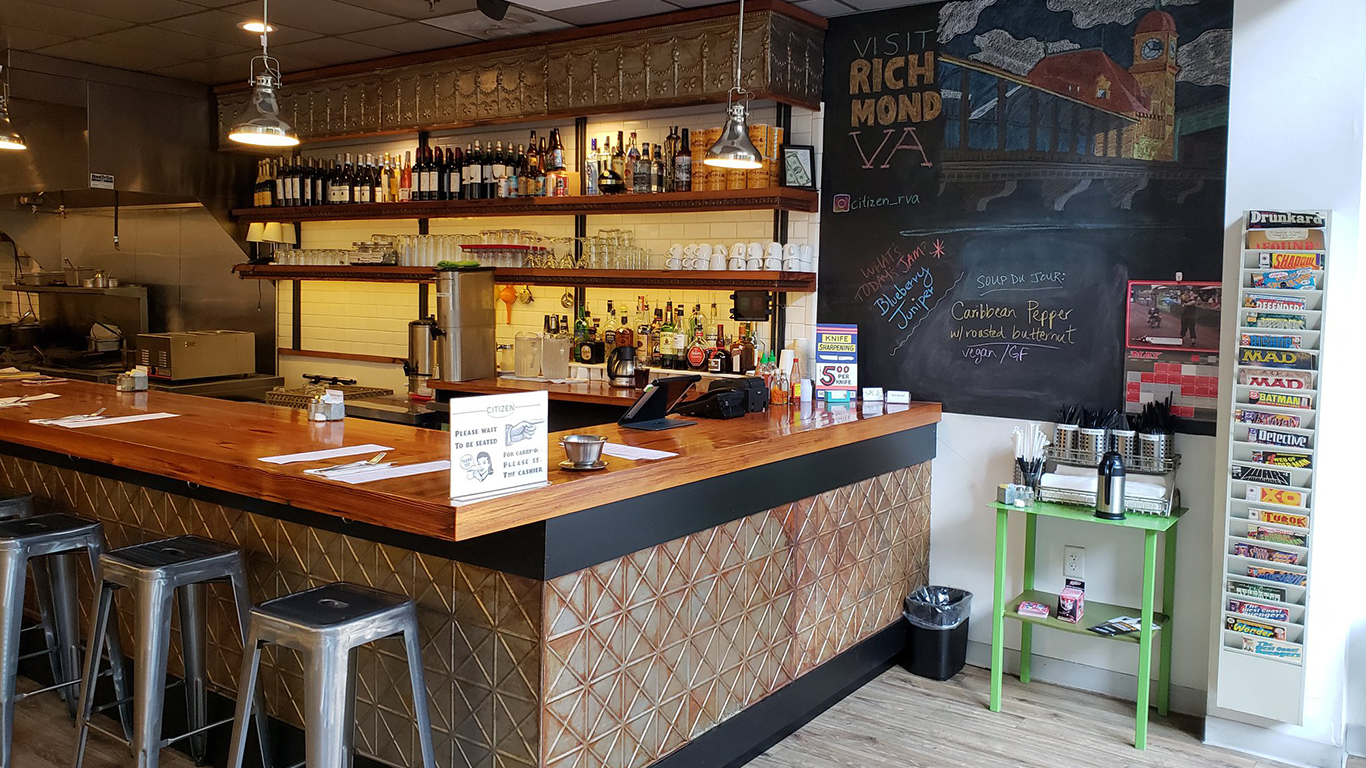
Virginia: Citizen
> Location: Richmond
After almost a decade, this downtown sandwich shop pulled the plug on March 18. The owner had planned to sell the place to another operator but had agreed to keep running the restaurant until the deal was finalized. Then, he noted, “the world came to a standstill.” The deal fell through, and Citizen shut down.
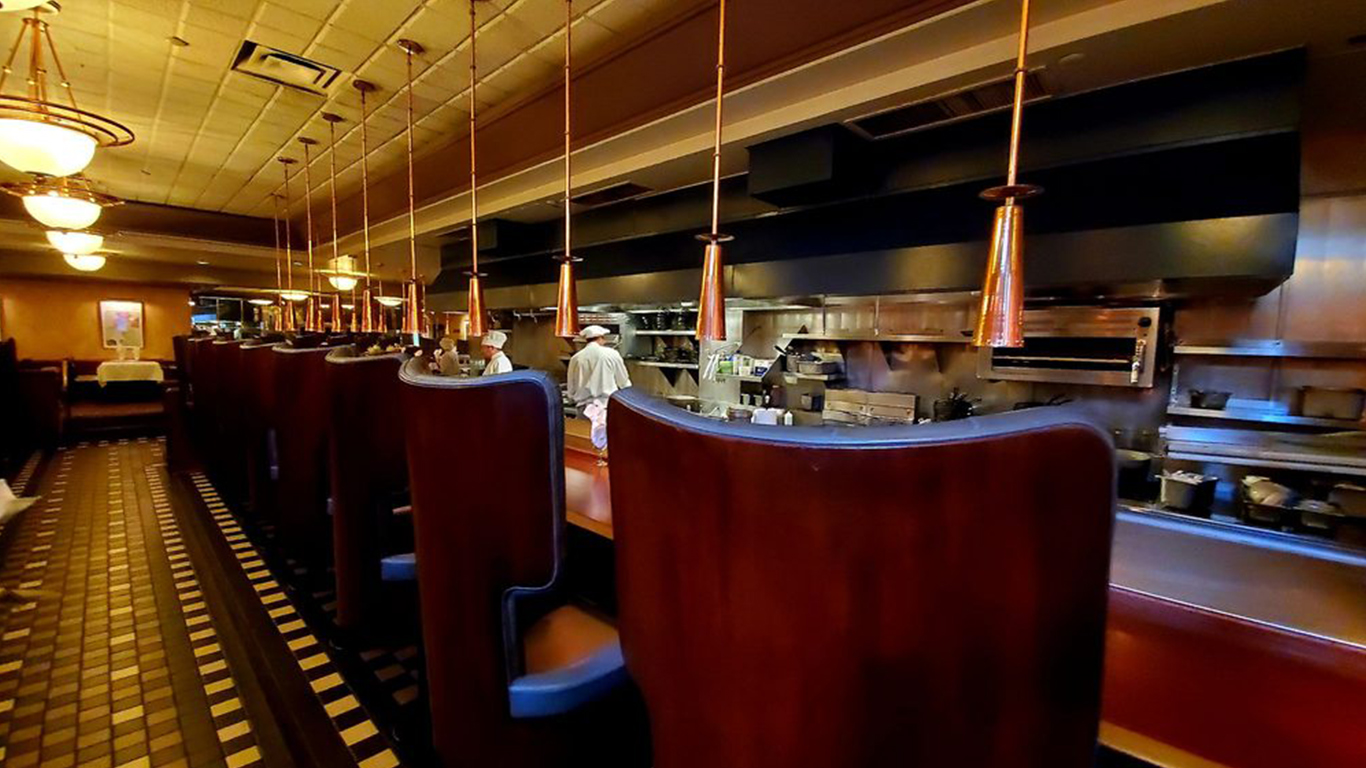
Washington: The Brooklyn Seafood, Steak & Oyster House
> Location: Seattle
Known for more than a quarter of a century for its serious oyster menu as well as its meat and seafood dishes, The Brooklyn called it quits as of March 13. A statement blamed “the devastating economic impact of global events.”
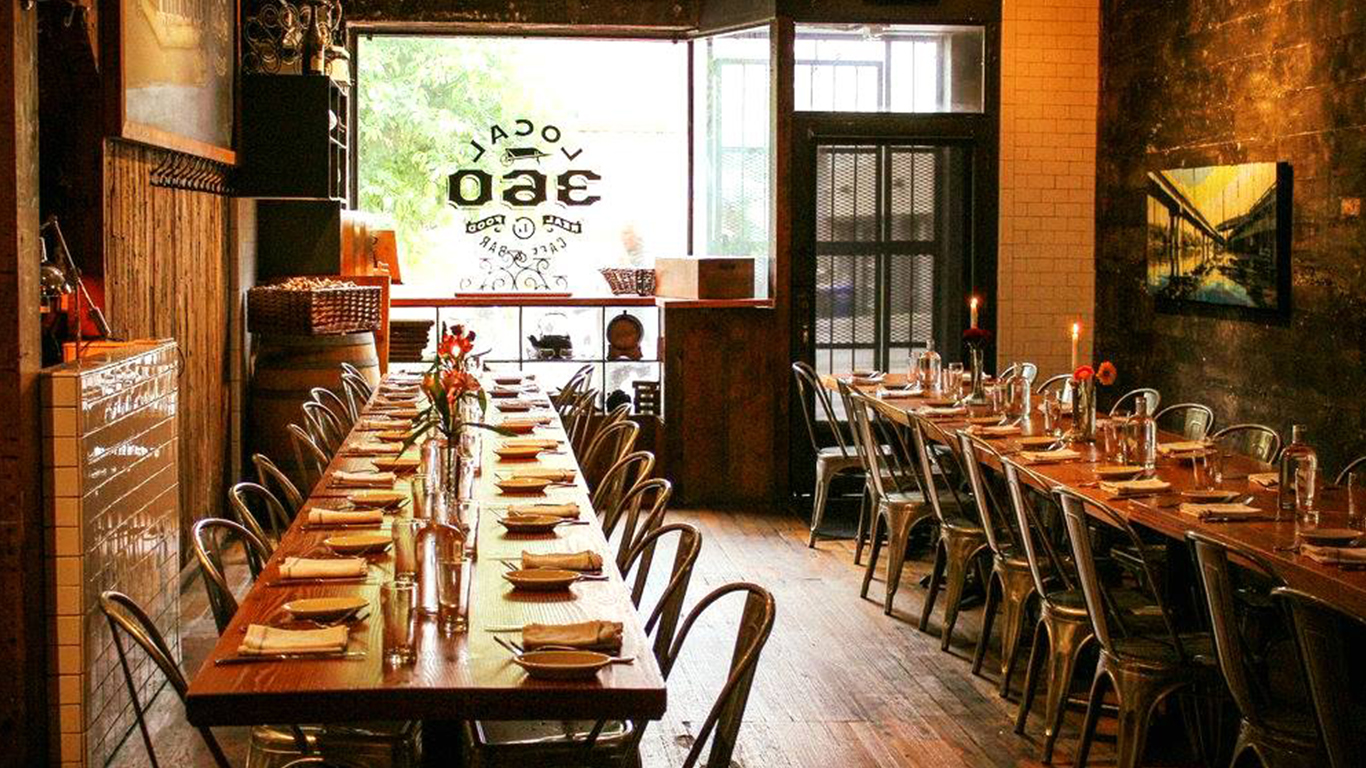
Washington: Local 360 Café and Bar
> Location: Seattle
In early March, this purveyor of “real food” posted an online notice that it was “closing entirely.” It cited various factors, including group dining cancellations, the likely impact of the pandemic on Seattle tourism this summer, possible mandatory quarantine measures, and the challenges of operating with a smaller staff for shorter hours.
[in-text-ad-2]
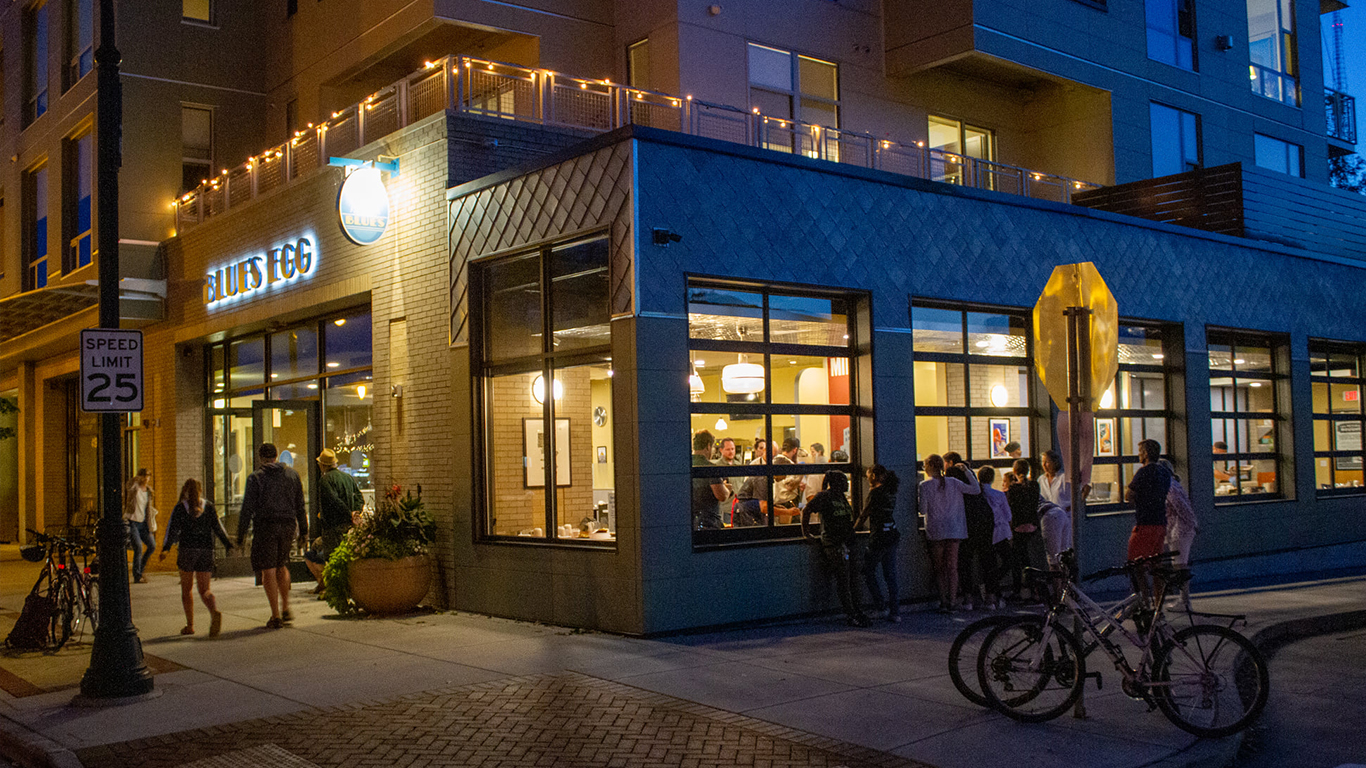
Wisconsin: Blue’s Egg
> Location: Shorewood
This “modern American brunch” restaurant in a Milwaukee suburb, opened in May of 2018, will not reopen in its current form. Owners Black Shoe Hospitality say that a new concept in the space, serving both brunch and dinner, will open eventually, but there is no firm timeline. A Blue’s Egg location in Milwaukee itself plans to reopen.

Nationwide: Steak ‘n Shake
> Locations: 29 states
This far-reaching chain, known for its “steakburgers” and specialty milkshakes, has permanently closed 51 of its company-owned locations around the country; six franchises have followed suit. (A total of 553 remain open, including both company-owned and franchised units.) According to the chain’s parent company, Biglari Holdings, “the COVID-19 pandemic had an adverse effect on our restaurant operations,” making it impossible to “predict how the outbreak…will alter the future demand of our products.”

Nationwide: Sweet Tomatoes / Souplantation
> Location: 16 States
The salad, soup, and bakery buffet chain called Sweet Tomatoes in 15 states and Souplantation in Southern California has called it a day. All 97 locations of the operation, from Oregon to Florida, Nevada to Massachusetts, are permanently shut. FDA recommendations for closing down self-service stations pose particular problems for buffet restaurants, according to John Haywood, CEO of the chain’s parent company, Garden Fresh Restaurants. “The regulations are understandable,” he told the San Diego Union-Tribune, “but unfortunately, it makes it very difficult to reopen.”
Credit card companies are at war, handing out free rewards and benefits to win the best customers. A good cash back card can be worth thousands of dollars a year in free money, not to mention other perks like travel, insurance, and access to fancy lounges. See our top picks for the best credit cards today. You won’t want to miss some of these offers.
Flywheel Publishing has partnered with CardRatings for our coverage of credit card products. Flywheel Publishing and CardRatings may receive a commission from card issuers.
Thank you for reading! Have some feedback for us?
Contact the 24/7 Wall St. editorial team.